

Sustainability Report


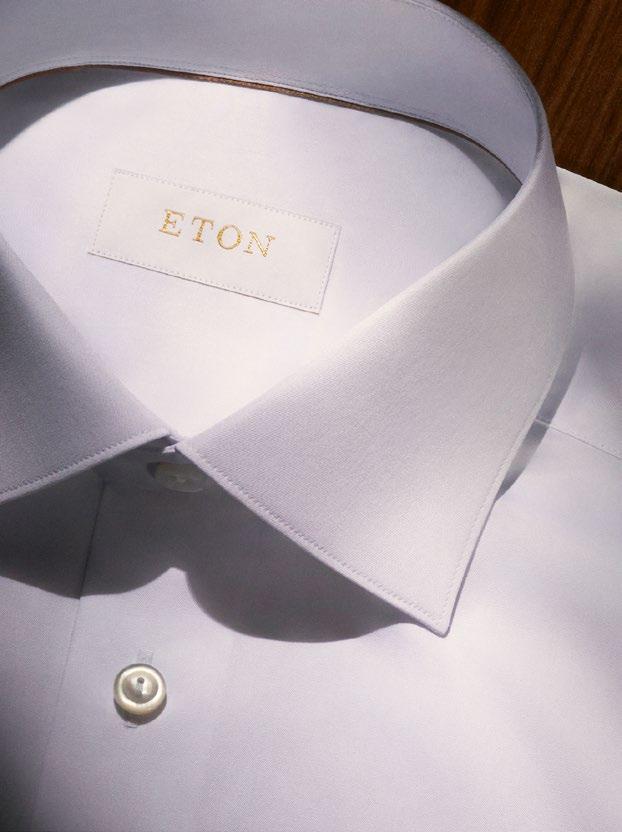

A Comment From our CEO
Eton stands for timeless style over trends, and modern luxury over fast consumption. Since our first shirt, we have crafted garments with enduring quality and value. Longevity is at the core what we do.
Our belief in longevity is reflected not only in our products, but also in how we conduct our business. One example is our focus on Custom Made over the past year, allowing customers to compose their own shirt, made to order. This ensures that every product has a purpose, and it reinforces our promise of shirts that last.
2024 HAS SEEN SIGNIFICANT PROGRESS in our climate work, nearly halving emissions compared to our 2019 baseline. The decrease can be explained partly by a rebalancing of our inventory, with fewer products produced during the year, but it’s also a result of the team’s common focus and great work. I’m proud that our science-based Net Zero targets for Scope 1–3 have been validated by SBTi through their corporate route, and that we have already achieved both our near-term and Net Zero goals for Scope 1 and 2.
STRONG, LONG-TERM PARTNERSHIPS are central to our sustainability strategy, allowing us to track both our own progress, and that of our suppliers. In preparing for the EU’s
CSRD directive, we have conducted a double materiality assessment — a solid foundation for fact-based reporting. We follow the development of the Omnibus proposal closely, preparing for future reports.
MOVING TOWARDS OUR GOAL to use solely organic and recycled cotton, we have now reached 85%. The next phase involves sourcing regenerative organic cotton with a lower impact on biodiversity, meant to preserve or even improve it. It’s yet another step in ensuring longevity in our products, and throughout every link of the value chain. When we work together as a team, great things happen.
DAVID THÖREWIK , CEO


of emissions based on actual data. 99%
organic cotton fabrics. 85%
The SBTi has approved our science-based emission reduction targets for Scope 1–3.
Read more on page 39.
renewable electricity in Scope 1 & 2. 100% in total emissions Scope 1–3. –49% in emissions in Scope 1 & 2. –93%
of Tier 1 & 2 suppliers have solar panels. 77% of all suppliers measured water use.
100% certifications. 5
water intensive suppliers with measused water use. 100%

Eton Facts and Commitments


Striving for Excellence
Eton pushes the boundaries of contemporary menswear. By inspiring our customers to express their personal style, we enable a more sustainable approach to dressing by offering products rooted in longevity.
At Eton, we turn visions into reality by embracing personality-driven style and seizing opportunities to redefine menswear. Our business idea is to create superior products for the dynamic lifestyle of the modern man, made with consideration for people and the planet, and presented in a premium-to- luxury segment for those who seek excellence. Through our own channels—e-commerce and retail stores—as well as wholesale distribution to premium department stores and marketplaces, we reach customers in over 50 markets across the globe. Our assortment features menswear and accessories crafted with uncompromising quality.

ETON GROUP
SUBSIDIARIES
» Eton AB
» Eton Shirts GmbH
» Eton Shirts Ltd
» Eton Canada, Inc.
» Eton, Inc
» Eton Madison Avenue, Inc.
» Eton S.R.L.
» Eton Holding, Inc.
THE ETON CUSTOMER
Our customer values individuality and expresses it through personal style. He invests in pieces that reflect taste and confidence—designed to feel relevant today and tomorrow. He appreciates quality and shares our belief that a more sustainable approach to style starts with products made to last.
Stockholm
Gånghester
London
Malmö
Copenhagen
Amsterdam
Münich
Como
Milano
New York
Atlanta
Hometown & HQ Offices
Showrooms Brand Stores
Our Value Chain
Building a global enterprise in the menswear market.
OFFICES
» Gånghester (HQ)
» Atlanta
» Como
» London
» New York
» Stockholm
CONCESSION STORES
» Illum, Copenhagen
» Magasin du Nord, Kongens Nytorv
» Selfridges, London
» Åhlens City, Stockholm
» Nordiska Kompaniet, Stockholm
SHOWROOMS
» Amsterdam
» Milano
» London
» New York
» Stockholm
» Munich
OUTLETS
» Barkarby, Stockholm
» Desert Hills, California
» Gånghester, Borås
» Hede, Gothenburg
» Vestby, Oslo
» Woodbury Commons, New York
LOGISTICS CENTERS
» Gånghester, Sweden
» Atlanta, USA
BRAND STORES
» Birger Jarlsgatan, Stockholm
» Södergatan, Malmö
» South Molton Street, London
» 330 Madison Avenue, New York
» 833 Madison Avenue, New York
TOUCHPOINTS
ETON ONLINE 48 markets
ETON RETAIL 5 markets in Europe, North America
WHOLESALE PARTNERS
Europe, North America, Middle East, Asia
Functions & Operations
ASSORTMENT FUNCTIONS
Our assortment functions—Design, Sewing Atelier, Buying, and R&D—are based in Sweden and Italy.
SUPPLY CHAIN OPERATIONS
Our supply chain operations—Planning, Production, Quality, and Distribution—are based in Sweden and the U.S. Additionally, we have resources in Lithuania and Romania that also support operations in North Macedonia.
PRODUCTION
We work closely with suppliers to ensure high quality products and build long-term collaborations, enhancing job security and improving working conditions. This long-term approach forms the foundation of our way of working, as our partnerships enable transparency and thorough supply chain mapping.
SUPPLY CHAIN LOCATION

FABRIC
RAW MATERIAL (COTTON)
SOURCING
» Egypt
» Turkey
» US
» India
» China (silk)
» New Zealand (wool)
WEAVING AND FINISHINGS
» Italy
» Switzerland
» Egypt
» Turkey
» Czech Republic
Suppliers source yarn and raw materials, and we buy directly from weavers.

ASSEMBLY
CUTTING AND SEWING
» Romania
» Lithuania
» North Macedonia
» Sweden (HQ)
» Turkey

TRIMMINGS
TRIMMINGS SUPPLIERS
» Sweden
» Italy
» Germany
» Romania
» Turkey
TRIMMINGS PRODUCTION
» Sweden
» Italy
» China
» Vietnam
» Portugal
» Germany
» Denmark

ACCESSORIES/ READY-MADE
SUPPLIERS FOR INDIVIDUAL ACCESSORIES AND READYMADE PRODUCTS:
» Italy
» Portugal
» Bulgaria
» Romania
» Albania
» Poland
» Spain
» Romania
» Turkey
» Netherlands
NUMBER OF APPAREL PRODUCTS PRODUCED DURING 2024: 993 973 pcs
Eton Sustainability Commitments
LEGACY FOR LONGEVITY
We commit to designing all products with longevity in mind to ensure a low FPU.
On product transparency.

Through our business practices we ensure that we contribute to prosperity in all markets we are active in.
Year by year
We have continuoulsy worked close with our suppliers to design with longevity in mind in order to create timeless high-end products.
20% Not started.
PROGRESS
Assortment’s ambition is to always design with longevity in mind, aiming for timeless classics.
We are working actively to maintain this commitment.
transparency throughout our supply chain.**
Year by year
Second year of reporting according to the Global Reporting Initiative (GRI) standards; GRI factor on Finance.
In preparation for the Digital Product Passport (DPP), we have researched on-product transparency solutions. A 3-year collaboration —Systemdemonstratorn— is initiated together with Borås Textilhögskola for further transparency.
In 2024 we continued our work together with other companies and organizations in Systemdemonstratorn. In 2025, we will start adding QR-codes on garments, including details like composition, certification, product specifics and supplier info.
We mapped our supply chain from Tier 1 to Tier 2 with follow up on our suppliers using questionnaries. Out of 26 suppliers, 23 were mapped. In line with our transparency goal, we publicly disclose our supply chain at etonshirts.com.
We report according to the GRI standards; GRI factor on Finace. We prioritize conducting our business in a responsible way to support prosperity in the local markets where we are active.
By implementing our new sustainability reporting system we have increased the transparency into our supply chain to capture most of our Tier 1 and 2 and some of our Tier 3 suppliers. On track for follow up on all Tier 1 & 2 suppliers by 2025.
Year-by-year we focus on governace and how we conduct our own business, and also our partnerships with suppliers, including a close follow-up of their business practices.
We have mapped 100%* of our Tier 1 and Tier 2 suppliers through our sustainability reporting system, strengthening transparency and accountability. Only one supplier remained unmapped, due to the collaboration being ended.
Ensure safe work and labor rights, free from harassment and discrimination in our supply chain.

Biennial audits of all our sewing factories, accessories suppliers and fabric suppliers.
Year by year
We enforce strict compliance standards with our suppliers through our Code of Conduct, covering health and safety, fair labor practices, equitable pay, association and collective bargaining rights, and anti-corruption measures. Our auditing process further ensures supplier compliance.
Year by year 100% We audited all Tier 1 suppliers, and started auditing our accessories suppliers using a third-party auditor, Intertek.
PROGRESS
Throughout the year, we have actively enhanced supplier engagement to ensure work and labor rights. Our efforts include audits and personal visits. Utilizing a sustainability reporting system as a sourcing tool enabled us to gather ocial impact data for the first time in 2023, broadening our insight.
All our Tier 1 and 2 suppliers are audited biennially either through third party auditors or valid audit result from a OEKO-TEX® STeP Certification certification. For some suppliers we conduct an Eton audit.
We have strengthened our supplier collaboration in 2024. In addition to self assesments and audits, the sustainability team has conducted numerous on-site visits for a deeper engagement and understanding.
We were able to compare audit results over time. Encouragingly, 80% of suppliers improved their scores—with all now scoring above 90%—showing progress in working conditions and environmental management.
Advocating inclusion & diversity.
Map the wage levels at 100% of our main suppliers in production by 2023 and onwards.
Year by year 75% In 2022, we established a new HR function led by our General Counsel and Head of HR. Based on our company values the HR department actively integrates inclusion and diversity in their work.
2023
Work with our sewing factories to provide their workers with a fair wage.
Year by year
100% In 2022, we began our work to map the wage levels in our supply chain in line with our goals on fair wage through audits.
Our HR department is leading this initiative, committed to creating inclusive workplaces reflecting our values. Moving forward, we aim for a structured approach to support this goal.
We have mapped all wages at our Tier 1 and 2 suppliers this year. Across all facilities, the lowest-paid employee earns above the minimum wage, and in some cases, surpasses both regional and average pay rates.
During our audits at our sewing factories, wages are an important factor. Suppliers are required to pay a fair wage and comply with local regulations. All audited suppliers received a high score on Wages and Benefits during 2022.
We have a transparent price set up with our Tier 1 suppliers. During 2023 we started to gather more detailed information and data on our suppliers’ social impact to further address the importance of worker wellbeing and wages.
HR, together with our Head of Sustainability, have advanced DEI efforts with a focus on gender equality. DEI is now embedded in development, mentorship, and hiring, with our succession planning showing results.
We have continued to map all our Tier 1 and 2 supplier wages for workers, excluding management. The average wages exceed the national minimum with at least 15% and often more, across both Tier 1 and Tier 2.
The topic of fair wages has been part of our structured supplier follow-up and dialogue during 2024.
PLANET RESPONSIBILITY

Net Zero by 2050 the latest.
50% reduction of emissions in Scope 1–2.
30% reduction of our Scope 3 emissions.
100% organic or recycled cotton.
2050
2030 100% Reduction of 34% from 2019 as a base year.
Reduction of 85% from 2019 as a base year.
2030 100% Increase of 4% from 2019 as a base year.
2025 85% During 2022, 28% of all the textiles we purchased was from 100% organic cotton.
100% more sustainable or recycled fibres in shirts and accessories/Ready made by 2030.
100% renewable electricity in our supply chain.**
2030 75% 33% of all textiles were made from more sustainable textiles in 2022.
During 2022, we began an ongoing dialog with our Tier 1 and 2 suppliers on the need to shift to renewable energy. We have mapped the energy consumption and energy source at 23 out of our 26 Tier 1 and 2 suppliers. The mapping gives us neccesary information on how we can support them in their transition to renewable energy.
Reduction of 22% from 2019 as a base year.
During 2023, we have purchased approx 73% certified organic cotton and 0,1% recycled cotton. We are however not fully in line with reaching our 2025 target.
Out of all the materials that we purchased in 2023, 72% were either certfied organic or recycled.
We have maintained a dialogue with our suppliers regarding the transition to renewable energy, and assessed the renewable energy (fuel+electricity) portion within our supplier network. Many suppliers have made investments in energy efficiency. 60% of our suppliers have installed solar panels and 70% have renewable electricity.
Our Net zero targets for Scope 1, 2 and 3 have been validated by SBTi.
Reduction of 93% from 2019 as a base year.
Reduction of 48% from 2019 as a base year.
85% of the cotton we sourced in 2024 was organic. The remaining share is the most challenging to convert but we are still aiming for target year 2025.
75% of of all fibers and ready-made was more sustainable, including trimings.
Our dedicated work in transforming our supply chain to renewable electricity has shown results and we have been able to reduce our emissions significantly. In addition 77% of all Eton’s Tier 1 and 2 suppliers now use solar energy either partially or fully.
**Refers to Tier 1 and 2.
PLANET RESPONSIBILITY
Renewable energy throughout our own operations by 2025.

A fully implemented circular business approach by 2030.
2025 100% We have worked actively during the year to reduce our emissions in our own operations. Several initiatives have been taken, exploring the possibility to install solar panels. Key areas we need to improve to reach our goal were identified.
2030 10% Together with our longterm supplier, Albini, we have explored ways to recycle our pre consumer waste. We switched to 100% recycled polyester neck clips. Increased the recycled materials in trims and the content of recycled materials in eCom boxes.
PROGRESS
In 2023, we acquired Energy Attribute Certificates (EACs) through the EQT tender for the non-renewable energy portion, enabling 100% renewable electricity. All departments are asked to procure renewable energy through landlords to reduce the need for EACs over time.
We have begun exploring circular initiatives, such as implementing a take-back scheme for old Eton garments in all our brand stores. Our retail department has set a 2024 progress target to prioritize this effort. We have also introduced a shirt crafted from recycled textile waste and committed to a 3-year project with Borås Textilhögskola to delve deeper into circular solutions.
We are working closely with landlords to transition our stores and showrooms to renewable energy, and have identified facilities for further energy efficiency upgrades. To reach 100% renewable electricity for Scope 2, we’ve also acquired Energy Attribute Certificates (EACs).
Our take back scheme in stores is available for all our customers. We have explored collaborative upcycling projects including repair, recycling and re-sale. Part of our packaging material is recycled.
Water intensive business partners measure water use and have set reduction goals.
2025 75% Our yearly follow up on our suppliers with water-intensive production processes shows us that 82% of our suppliers measure their water use and 39% of our water intesive suppliers has a reduction goal set.
We have continued throughout 2023 to measure the water use at our suppliers and this year captured 90% of our suppliers and 100% of our water intensive suppliers. 41% of our water intensive suppliers have a set reduction goal.
96% of all our suppliers measure water use. 55% of all our suppliers (equalling 75% of the suppliers with wet processes) have set reduction targets for water usage.

Sustainable Development Goals
At Eton, we recognize the importance of targeted actions and collaboration to address complex issues.
THE 2030 AGENDA for Sustainable Development serves as a global framework for achieving peace and prosperity for both people and the planet through the Sustainable Development Goals (SDGs).
WE HAVE IDENTIFIED seven prioritized goals where we either have the most significant impact or the greatest opportunity to create a positive impact.
WE HAVE DEVELOPED our Eton Sustainability Commitments, along with practical actions that focus on initiatives supporting these prioritized SDGs.
WE ENDORSE AND SUPPORT all SDGs in addition to our focused actions for the prioritized ones. We take our responsibility seriously and acknowledge that our business impacts more than just our prioritized SDGs.

PRIORITIZED GOALS










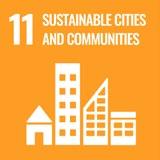


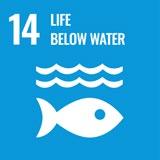
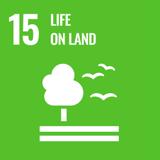



PEOPLE

Achieve gender equality and empower all women and girls.

In line with our company values One Eton and Empowering and reflecting our heritage as a female founded company, we actively work towards gender equality.
Material topics: Human Rights, Fair Labor Conditions in Supply Chain.
Non-material topics: Inclusivity & Diversity and Working Conditions in Own Operations.
5.1 End all forms of discrimination against all women and girls every where. 5.5 Ensure women’s full and effective participation and equal opportunities for leadership at all levels of decision-making in political, economic, and public life.
GOVERNANCE
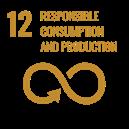
Ensure sustainable consumption and production patterns.
In line with our company values Work Smart and Progressive. Through responsible business practices and a strong governance framework, Eton contributes to prosperity.
Material topics: Pollution in Supply Chain, Chemical Management Circularity, Climate Impact, Water Usage in Supply Chain, More Sustainable Materials and Economic Performance and Impact.
Promote sustained, inclusive, and sustainable economic growth, full and productive employment, and decent work for all.
In line with our company values One Eton , Empowering and Work Smart . Health and safety and an inclusive workplace are priorities at Eton. We follow up on our supply chain impact, working together with suppliers to ensure that working conditions don’t violate labor or human rights.
Material topics: Human Rights, Anticorruption & Ethics, Fair Labor Conditions in Supply Chain, Freedom of Association, Economic Performance, and Impact.
Non-material topics: Working Conditions in Own Operations and Attracting & Retaining Talent.
8.8 Protect labor rights and promote safe and secure working environments for all workers, including migrant workers, in particular women migrants, and those in precarious employment.

12.2 By 2030, achieve sustainable management and efficient use of natural resources. 12.4 By 2020, achieve the environmentally sound management of chemicals and all wastes throughout their life cycle, in accordance with agreed international frameworks, and significantly reduce their release to air, water and soil to minimize their adverse impacts on human health and the environment. 12.5 By 2030, substantially reduce waste generation through prevention, reduction, recycling and reuse. 12.6 Encourage companies, especially large and transnational companies, to adopt sustainable practices and to integrate sustainability information into their reporting cycle.
PLANET

Ensure availability and sustainable management of water and sanitation for all.
In line with our company values One Eton and Progressive Prioritized to mitigate water consumption and pollution in our supply chain, ensure cleaning of wastewater, and decrease water usage.
Material topics: Pollution in Supply Chain, Chemical Management, and Water Usage in Supply Chain.

Ensure access to affordable, reliable, sustainable, and modern energy for all.
In line with our company values One Eton and Progressive In Scope 1–2 (own operations) we use 100% renewable electricity. As most of our emissions are related to our supply chain (Scope 3) we are working on transitioning our supply chain to renewable energy, to achieve our goal of 100% renewable electricity by 2030.
Material topic: Climate Impact.
6.3 By 2030, improve water quality by reducing pollution, eliminating dumping and minimizing release of hazardous chemicals and materials, halving the proportion of untreated wastewater and substantially increasing recycling and safe reuse globally.
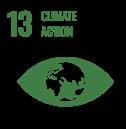
Take urgent action to combat climate change and its impacts.
In line with our company values Work Smart and Progressive. We are measuring and following up on our emissions in Scope 1–3 and actively working on reducing our environmental and climate impact. We have 2019 as our base year and we have committed to reducing our emissions in line with the Paris agreement.
Material topic: Climate Impact.
13.2 Integrate climate change measures into national policies, strategies and planning.
7.2 By 2030, increase substantially the share of renewable energy in the global energy mix.

Protect, restore and promote sustainable use of terrestrial ecosystems, sustainably manage forests, combat desertification, and halt and reverse land degradation and halt biodiversity loss.
In line with our company value Progressive. We are shifting towards using 100% organic and recycled cotton and other sustainable materials in our products, prioritizing responsible land use and mitigating our impact on biodiversity. We commit to source noncommercial goods such as packaging materials from recycled sources or responsibly managed forests.
Material topics: Climate Impact, Circularity, More Sustainable Materials, Pollution in Supply Chain and Water Usage in Supply Chain.
15.3 By 2030, combat desertification, restore degraded land and soil, including land affected by desertification, drought, and floods, and strive to achieve a land degradation-neutral world.

Legacy for Longevity

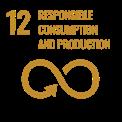

OLOF ENCKELL COLLECTION MANAGER
MIJA BLADMO ASSORTMENT DIRECTOR
Towards 100% Organic Cotton
Eton has set up a goal of using 100% organic cotton by 2025. And while the company remains committed, quality is non-negotiable.
I n 2021, none of Eton’s cotton was organic. By 2024, the number reached 87%. But the final steps are the hardest. “Some specialized fabrics and yarns are difficult to source in organic quality,” Collection Manager Olof Enckell says. “Even if we don’t reach 100% by 2025, keeping the target is essential to maintain momentum.”
ONE OF THE BIGGEST hurdles is extra-long staple (ELS) cotton, which represents only about 2% of the global cotton production. Getting suppliers to invest in organic ELS has been a long-term effort, where the challenge isn’t so much quality but availability. Mija Bladmo, Assortment Director, explains: “Organic production takes years to convert and is more expensive in the short term. But the long-term benefits—to both people and planet—outweigh the costs.”
ETON’S PARTNERING with the weavers has been essential in encouraging growers to make the switch. “The finer the yarn, the more complex the production,” Enckell notes. Building on the legacy as a premium brand combined with larger volumes, Eton
has helped drive change. “Our best-selling Signature Twill shirt was the first to transition. It had the greatest impact and set the standard.”
CLOSE COLLABORATIONS are crucial for success. “Our fabric suppliers share our vision around transparency, organic farming and quality,” says Bladmo. “As one of our supplier’s largest organic cotton customers, we help sustain interest in the transition. Several of our suppliers invest in organic re-generative grown cotton, which includes crop rotation to preserve soil health and maintain a resilient ecosystem. This is the next step that we are actively exploring.”
NEW PRODUCT CATEGORIES , such as knitwear, have added another layer of complexity—but the commitment remains firm. “For us, this is a fundamental standard, not an optional feature. It defines our brand,” says Enckell. Many stakeholders acknowledge Eton’s ambitions, which reinforces the commitment. “We see this as a responsibility—one that shapes the future of premium menswear.”
Timeless Design, Created for Longevity
In 1928, our founder, Annie Petterson, started Eton from her home in the village of Gånghester, Sweden. Her commitment to quality and attention to detail helped shape the company into what it is today.
At Eton, we design with intention—prioritizing timeless style, enduring quality, and thoughtful craftsmanship. Sustainability is at the heart of everything we make. As a global brand in the fashion industry, we recognize the impact that our operations have on the environment, economies, and communities. Every piece of clothing represents the use
of resources, and the fashion industry plays a role in climate and environmental change. Our goal is to redefine luxury, with garments designed to celebrate individuality and inspire confidence through personal style. By creating products that stand the test of time, we encourage responsible consumption.

” Never hand over a shirt unless you are completely satisfied with it.
ANNIE PETTERSON

Quality Control
Quality has always been our driving force, from the day we were founded until today.
We maintain close partnerships with our fabric and trim suppliers, and with our garment production sites, to ensure quality. Eton’s commitment to consistency is thoroughly described in a quality manual. This 600-page document covers everything from thread thickness to seam allowance width.
Quality assurance involves a process of meticulous steps taken in collaboration with our garment factories. Eton’s quality and production department is in continuous contact with the production units throughout the value chain to secure a close collaboration.
With local presence we can provide support and assistance. Our quality team carefully controls all production parameters, to make sure that the highest standards are followed at every stage:
» WE PAY ATTENTION to every detail, from fabric storage, handling, cutting, and matching to precision measurements down to 1/3 of a millimeter.
» WE ENSURE THE USE of the correct tools, machinery, and technology.
» WE MONITOR TEMPLATES , temperatures, speed, and other key factors to guarantee the final quality of every shirt.
» ALL PRODUCTION PARAMETERS are reviewed and approved by Eton’s quality team.
LOW RECLAIMS RATE
We take pride in our very low customer reclaims rate, with only 0.21% within our shirts assortment and 0.06% for ready-made. All reclaims (garments and accessories) are registered by our warehouse team or customer service, and followed up by our Quality department.
Eton takes a proactive approach to minimize future claims. The Quality and Production department monitors statistics in real time. These insights are analyzed monthly to develop action plans for continuous improvement.
FIG 1. RECLAIMS PERCENTAGE

HIGHER QUALITY MEANS LOWER FOOTPRINT PER USE
We design all products with longevity in mind, and our objective is to decrease the footprint per use while preserving product durability and a timeless design. The footprint per use means the overall impact of each new product, including production, distribution, selling, marketing, returns, care, and repair.

A Sharper Focus on Custom Made
At Eton, we offer custom-made shirts tailored to individual preferences, using our existing designs as the foundation.
We personalize each shirt based on specific measurements and design choices. Customers can adjust fit details like neck, chest, waist, sleeve length, and more for a perfect fit.
In 2024, we increased our efforts and investments in custom-made services to meet growing demand. Our Custom-made Sales Coordinator has strengthened our presence across all markets by engaging with wholesale clients, retail staff, and end customers. Through a mix of in-person visits and digital meetings, we have conducted training sessions to showcase our offerings. The initiatives have enhanced product knowledge and built stronger relationships. As a result, we have seen increased interest and sales.
These interactions also provide valuable feedback from wholesale and retail partners, which we bring back to our team to inspire new ideas, improvements, and further development, such as adjusting fit, refining style, or accommodating specific needs. Our custom orders are crafted in Lithuania, with some development and testing taking place at our Swedish headquarters.
FIG 2. CUSTOM MADE

Eton’s custom-made service combines luxury craftsmanship with modern tailoring, ensuring a sophisticated look. From collar and cuff, to adding a monogram, each shirt is designed to reflect individual taste.

METICULOUS PRODUCTION
Eton uses only high-quality materials, including Extra Long Staple cotton, which comprise only 2–3% of each harvest. Our production ensures longevity, with long-standing close ties to heritage fabric mills in Italy and Tier 1 garment factories in Romania, Turkey, North Macedonia, and Lithuania. Our readymade suppliers are in Italy, Romania, Portugal, Bulgaria and Albania. Additionally, we have a production unit in Sweden for development and innovation testing, while custom-made orders are produced primarily in Lithuania and partly in Sweden.
CARE GUIDE
We prioritize longevity through thoughtful design and high-quality materials. To help customers extend the lifespan of our products, we provide detailed care instructions on our website and B2B platform, covering washing, stain removal, and ironing. We also offer a complimentary button replacement service. Additionally, our dedicated customer support team is available to provide personalized care advice, answering questions about washing and garment maintenance. As a preventive measure, we emphasize proper shirt care, such as keeping denim shirts in their light-protective bags.

Responsibility for the Planet

Our commitments
» 91.6% reduction in Scope 1–2 emissions 2019–2025.
» 27.5% reduction in Scope 3 emissions 2019–2030.
» Renewable energy in own operations by 2025.
» 100% renewable electricity in supply chain by 2030.
» Measure water use and set reduction goals for all business partners with water intensive operations by 2025.
» 100% organic or recycled cotton by 2025.
» 100% sustainable or recycled fibers by 2030.
» Circular business approach by 2030.




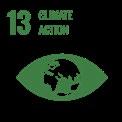

Eton’s Climate and Environmental Commitment
At Eton, we are on a journey towards lowering emissions to help future-proof our operations, decoupled from financial growth. We are fully committed to reducing our impact while continuing to provide our customers with high-quality products.

Our transition has already begun, and we are acting across all departments: design, quality, production, logistics, packaging, and distribution. Recognizing our impact as a fashion industry player, we focus on climate impact, circularity, responsible materials, supply chain pollution, chemical management, and responsible water usage.
CLIMATE ACTION is one of our prioritized SDG goals. We are committed to reducing our emissions and minimizing our impact on ecosystem-services, and we acknowledge the need to transition from conventional materials and increasing the use of preferred materials.
WE ALIGN WITH THE PARIS AGREEMENT , with our emission reduction targets validated by SBTi, and we commit to reach science-based net-zero target by 2050. Eton Group AB commits to maintain at least 91.60% absolute reduction in Scope 1 and 2 GHG emission reductions, and to reduce absolute Scope 3 GHG emissions with 90.00%, by 2050 from a 2019 base year. These target boundaries include land-related emissions and removals from bioenergy feedstocks.

OUR THREE FOCUS AREAS FOR REDUCING OUR EMISSIONS AND ENVIRONMENTAL IMPACT
We have been focusing our work on these areas for the last couple of years as they are the key drivers of our emission. A shift here will enable the greatest progress.
FABRIC
The products we design and the materials we choose. Our fabric goals include a transition to 100% organic or recycled cotton by 2025 and 100% sustainable fabrics by 2030.
ENERGY
The energy used by our suppliers and in our production and operations. The transformation to renewable energy and energy efficiency is a key focus across Scope 1–3.
TRANSPORT
Transport is responsible for 39% of our emissions— a substantial part. A large share of outbound freight is being carried out by air, which has a high impact on our emissions and on air-pollution.

Science Based Targets
The Science Based Targets initiative (SBTi) has approved Eton Group’s science-based emission reduction targets for its own operations (Scope 1 and 2) as well as its value chain (Scope 3).
Additionally, the SBTi has validated Eton’s Net Zero targets for Scope 1, 2, and 3. This validation confirms that Eton’s climate strategy and targets align with the Paris Agreement, ensuring they are scientifically robust.
The SBTi defines and promotes best practices in science-based target setting. By providing a clear framework, the SBTi helps organizations align their emissions reduction strategies with the Paris Agreement goals. This supports global efforts to mitigate climate change.
The initiative develops standards, tools, and guidance that enable companies to set greenhouse gas (GHG) reduction targets. The targets are in line with what is required to limit global temperature rise and to achieve net-zero emissions by 2050 at the latest.
The SBTi is a collaboration between CDP, the United Nations Global Compact, the World Resources Institute (WRI), and the World Wide Fund for Nature (WWF). It operates as a charity, with a subsidiary that independently assesses the targets set up by companies.
ETON’S NEAR-TERM TARGETS
» Reduce absolute Scope 1 and 2 GHG emissions by 91.6% by 2030, from a 2019 baseline.
» Reduce absolute Scope 3 GHG emissions by 27.5% by 2030, from a 2019 baseline.
ETON’S LONG-TERM TARGETS
» Maintain a minimum 91.6% reduction in absolute Scope 1 and 2 GHG emissions from 2030 through 2050, based on a 2019 baseline.
» Reduce absolute Scope 3 GHG emissions by 90% by 2050, from a 2019 baseline.
These targets demonstrate our commitment to aligning our operations with climate science and contributing to global efforts to limit warming to 1.5°C. The SBTi’s validation reinforces our dedication to accelerating climate action while growing our business profitably and sustainably. The validation is a milestone for the progress we have already made in reducing emissions through a systematic and science-driven approach.
Eton’s Climate Impact
Nearly all of Eton’s emissions, 99.4%, are based on actual data. The total emissions from Eton Group’s operations in the financial year of 2024 were 10 242 tons of CO2 e, a reduction by 37% compared to 2023.
99.8% OF EMISSIONS CAME FROM SCOPE 3: our indirect emissions, which is mainly our supply chain. The distribution of emissions per Scope is illustrated in Figure 5. All calculations are primarily based on actual activity data from our operations. The climate consultant company 2050 has performed the underlying calculations. For 2024, 99.4% of our emissions are based on actual data. Our reported activity has been matched to emission factors to calculate the climate impact from our operations.
The emissions for 2024 are 10 242 tCO2e. The largest share of the total emissions is found in the purchased Goods and Services category which stands for 57%, followed by the category Transport and Distribution at 39%.
Total emissions have decreased by 49% compared to the base year, 2019, and by 37% since 2023. The total numbers of sold apparel articles have decreased by 26% compared to the base year. Last year, we had excess fabric stock due to previous over-purchasing. This year, we have adjusted stock levels based on sales and demand, reducing our fabric purchases. We have used fabric already in stock to reduce levels and the need for new production. Also, market-related decreases in sales contributed to reduced material purchases.
We have applied a market-based method and an operational control approach in our climate accounting.
from base year 2019 to 2024
The category Purchased Goods and Services includes the manufacturing of our products as well as the packaging material.
FIG 4. SHARE OF EMISSIONS PER CATEGORY
FIG
Climate Impact and Progress in Scope 1 & 2
Compared to our base year 2019, we have reduced our Scope 1 & 2 emissions with 93%, already surpassing our goal.
Reducing emissions is a top priority throughout our operations. Our identified key focus area is the transformation to renewable energy and energy efficiency to reduce our impact. Our largest facilities— our headquarters and warehouse in Gånghester, Sweden, and our Alpharetta warehouse in the United States—run on renewable energy.
For stores and showrooms currently using nonrenewable energy, we are discussing a transition to
renewable sources with the landlords. Going forward, we have identified the facilities where further energy efficiency improvements are needed. Additionally, we have implemented a company car procedure requiring hybrid or electric cars.
We have acquired Energy Attribute Certificates (EACs) to cover the portion of our electricity that isn’t renewable, allowing us to achieve 100% renewable energy for our Scope 2.

EMISSIONS IN SCOPE 1 & 2
We have been tracking and reporting our emissions in Scope 1 and 2 since 2018, with 2019 set as the base year. By taking measures to reduce our climate impact the 2024 data show a decrease of over 93% compared to the base year.
SCOPE 1
Direct Greenhouse Gas Emissions
That occur from sources that are controlled or owned by an organization.
SCOPE 2
Indirect Emissions
Associated with the purchase of electricity, steam, heat, or cooling.
CO 2 , CH 4 and N 2 O are included in the calculations.
SCOPE 1 & 2
–93%
from base year 2019 to 2024
FIG 7. EMISSIONS PER SCOPE
FIG 8. SCOPE 1 & 2 EMISSIONS DIVIDED BY SOURCE
Climate Impact and Progress in Scope 3
In 2024, our Scope 3 emissions decreased by 48% compared to our 2019 base year. Nearly all of our total emissions—99.8%—originate from Scope 3.
SCOPE 3 EMISSIONS result from indirect activities in our value chain that are not directly controlled by us, such as production and transport. The basis for any climate impact reduction strategy is to know your impact and what actions you need to take to mitigate it. Tracking and analyzing these emissions is essential to achieving our 2030 targets. Our goals are ambitious, and we are committed to meeting them.
THE 2024 FINANCIAL YEAR marks the fifth time Eton Shirts has collected Scope 3 activity data. Reported Scope 3 emissions totaled 10 218 tCO 2 e, down from 16 133 tCO 2 e in 2023—a 37% decrease year over year and a 48% reduction compared to the 2019 base year.
PURCHASED GOODS AND SERVICES —including the production of raw materials and garment packaging— have the largest overall impact, representing 57% of our total Scope 3 emissions. Supplier energy sources contribute significantly to this figure, and transport is also a major factor.
WE ACHIEVED a total emissions reduction of approximately 37% compared to the previous year—a significant decrease in just one year. This reduction is primarily driven by improvements in the Purchased Goods and Services category, which includes fabric purchases, production, and distribution. Emissions from this category have decreased by 40% compared to last year, alongside a 32% reduction in Transport and Distribution.
THESE REDUCTIONS is in part due to the overall drop in purchased product volumes, which fell by 27% between 2023 and 2024. Our purchased material weights also decreased by 33%. Additionally, by using existing fabric stock in our collections and special productions, we have reduced both our fabric inventory and the need to produce new fabric.
Focus Area – Energy
We monitor the energy consumption and energy efficiency measures of our suppliers, and we actively support their transformation and progress towards renewable energy.
ELECTRICITY
An ongoing initiative with our Tier 1 and 2 suppliers is focusing on their transition to renewable energy. In 2024, all Tier 1 and Tier 2 suppliers reported their energy consumption data—except one Tier 1 supplier, with whom our cooperation has ended.
Our dedicated work towards transforming our supply chain to renewable electricity has shown result and we have therefore been able to reduce our emissions significantly due to that. We have a goal of 100% renewable electricity in our supply chain by 2030, and this shift will significantly reduce our future emissions.
Our efforts are in line with SDG 7 for affordable and clean energy. We anticipate that our actions will also indirectly contribute to SDG 7.2 by increasing the share of renewable energy globally.
FUEL
NATURAL GAS is being used by 60% of our reporting suppliers. Many have implemented energy efficiency measures to reduce consumption. Natural gas plays a key role in the textile industry, especially in energy-intensive manufacturing processes where electricity alone is insufficient. While cleaner than coal and oil, it is still a fossil fuel that emits significant CO 2 when burned. Finding an equal alternative with less emissions remains a challenge.
BIOGAS could be a promising replacement, but many countries lack the necessary infrastructure. Where available, biogas is often used for electricity and heating rather than as a direct fuel substitute in industry. Therefore, working to improve energy efficiency is often a faster and more effective focus to reduce emissions.
SOLAR ENERGY IN PRODUCTION
77% of all Eton’s suppliers in Tiers 1 and 2 currently use solar energy either partially or fully, with a majority planning to implement it within a five-year period.
Tier 1 Suppliers (finished products)
Out of 13 suppliers, 77% rely on solar cells for partial or full energy supply.
Tier 2 Suppliers (material production) Out of 9 suppliers, 78% rely on solar cells for partial or full energy supply.
Focus Area – Transports
Eton is a company with a global reach on 55 markets, with a main warehouse in Sweden complemented by a smaller warehouse in the USA.
39% of Eton’s total emissions stem from transportation and distribution. Air freight is often considered a necessity and represents 97% of these emissions.
Transport emissions decreased by 32% in 2024 compared to the previous year. Most transports were outbound, with a payload share of 95% and the same share of emissions. Inbound stood for only 1% of the total payload and 0.4% of emissions, while the remaining 4% of transports were returns.
The main reasons for the decrease in transport emissions is the lower amount of shipments.
This is due in part to a reduction in sales of number of articles, and in part to the fact that we had already made previous purchases of many materials and products which we sold during 2024. We continue developing our logistics setup to further reduce our environmental impact, with a focus on direct deliveries and the setup of sea freight as a standard option. To maintain a lowering of our emissions a transition to sea–and land–based transport is a necessity.
FIG
FIG
Focus Area – Fabrics
Our goal is that all our fabrics should be more sustainable by 2030. We work hard to combine sustainability with Eton’s quality standards through meticulous sourcing efforts.
The fabrics we choose have a big impact on our emissions. We are transitioning towards more sustainable options with lower environmental footprints. Our brand certifications—Organic Content Standard (OCS), Recycled Claim Standard (RCS), Global Recycled Standard (GRS), Responsible Wool Standard (RWS), and Global Organic Textile Standard (GOTS)—help us ensure that the materials we use meet verified environmental and social responsibility standards.
Tier 4 (raw materials) and Tier 3 (yarn and fiber processors, including trims) have the highest emission impacts in the production phase.
The majority of Eton’s garments are made from cotton. Combined, organic and virgin cotton fibers account for 66% of our total emissions from
fabrics—a figure that has decreased thanks to an increased share of organic cotton. Silk accounts for 17%, wool for 8%, and linen for 4%. While these materials represent just 4.6% of our total material weight, they are responsible for 25% of fabric emissions.
We are working toward a target of 100% organic and recycled cotton by 2025. This will not only reduce our GHG emissions and our dependency on ground water—but also help protect biodiversity.
Our assortment team actively works to avoid overstock by sourcing just the right amount of fabric, and by mapping out material choices by collection. This strategy helps us reduce excess production and emissions per product. Emissions linked to fabric weight decreased during the year.
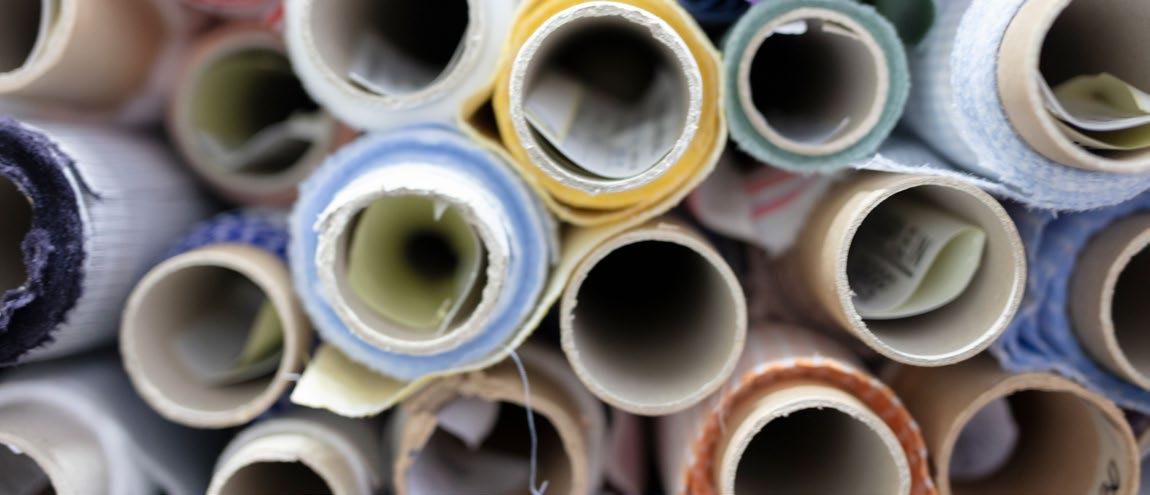
Elastane/Spandex
FIG 14.
FIG 15. RELATION BETWEEN
The Greenhouse Gas Protocol
In order with the guidelines of the Greenhouse Gas (GHG) Protocol, our emissions have been divided into three Scopes.
SCOPE 1
Direct emissions
» Company operated vehicles.
» Refrigerant leakage in offices, stores, showrooms, and warehouses.
» Fuel use for on site heat or electricity production.
SCOPE 2
Emissions from purchased energy
» Electricity consumed in offices, stores, showrooms, and warehouses.
» District heating and cooling consumed in offices, stores, showrooms, and warehouses.
SCOPE 3
Other indirect emissions
» Purchased goods and services (representing Tier 1–4 and non-commercial goods/packaging materials).
» Transportation and distribution (upstream and downstream).
» Energy (electricity, heat and fuels) consumed in third party facilities.
» Fuel and energy related activities
» Business travel.
For the division of categories between Scopes, see Figure 16.

METHOD
To calculate Eton AB’s climate impact, we apply the Greenhouse Gas Protocol (GHG Protocol)—the most widely recognized global standard for measuring greenhouse gas emissions from corporate operations. These calculations follow the three associated standards: the Corporate Standard, the Corporate Value Chain (Scope 3) Standard, and the Technical Guidance for Calculating Scope 3 Emissions.
According to the GHG Protocol, emissions from a company’s operations are categorized across three Scopes (see Figure 16 below):
SCOPE 1 covers direct emissions from owned or controlled operations.
SCOPE 2 includes indirect emissions from purchased electricity, district heating, cooling, and steam.
SCOPE 3 comprises all other indirect emissions occurring in the value chain—both upstream and downstream—including emissions from purchased goods and services, business travel, transportation, and employee commuting.
METHOD FOR SCOPE 2
In line with GHG Protocol guidelines, emissions from electricity consumption can be calculated using either the location-based or market-based method. Eton AB uses the market-based method in its climate reporting.
FIG 16. SCHEMATIC FIGURE OF SCOPE 1, 2 AND 3 EMISSIONS RELATED TO AN ACTIVITY AND ITS VALUE CHAIN, ACCORDING TO THE GHG PROTOCOL

THERÉSE SUOMÄKI HEAD OF E-COMMERCE
Reducing Returns for a Better Customer Experience
With e-commerce accounting for a quarter of Eton’s total sales, Therése Suomäki and her team are balancing profit with sustainability, with a focus on minimizing returns.
“Returns have a direct impact on both our earnings and our environmental footprint. One of our key goals is to reduce return rates by 10%,” says Therése Suomäki, Head of E-Commerce at Eton. With this in mind, her team is determined to optimize the online shopping experience.
THE MAIN REASON for returns is sizing issues. To tackle this, Eton has redesigned its website, providing two ways to help customers find the right fit. “We offer a traditional measurement method, but also an AI-powered tool called Sizefinder, which suggests a size based on height, weight, age, and fit preference,” says Suomäki.
EXPANDING THE ASSORTMENT to knitwear, blazers and more has presented new challenges with different sizing considerations. To help, the team is improving product descriptions, focusing on fabric details, stretch, and fit. “Online customers can’t touch the fabrics, so we need to provide as much information as possible.”
SEASONAL SALES also play a role. “During summer sales, we see more returns because we get new customers who are less familiar with our sizing,” Suomäki explains. Some shoppers also buy multiple sizes with the intention of returning the items that don’t fit.
ENHANCING THE OVERALL customer experience is a priority. “We have introduced a return portal to collect feedback,” Suomäki says. Eton is also working to minimize unnecessary claims related returns. “Our customer service team reviews images of products before approving a claim, so customers don’t have to send them back. Although complaints are rare, this helps reduce unnecessary shipping.”
ULTIMATELY, Therése Suomäki and her team have two tasks: “We want to sell products, and minimize returns. Striking the right balance between the two is key to our future success.”
Certifications
We have implemented the Organic Content Standard (OCS) for a large part of our Wardrobe Essentials (WE) collection— core products that remain in stock yearround and previously lacked certification.
This has resulted in a significant increase in the number of products certified according to OCS. In 2024, we did not add any new certifications but instead focused on actively converting our existing WE range to organic.
CONTROL UNION (CU) is the third-party certification body, and the certification includes most of our sewing factories. All products that we claim as more sustainable are certified. Our objectives include achieving 100% organic or recycled cotton by 2025 and 100% sustainably sourced materials by 2030. As of now, we are shy of reaching our 2025 goal. We are already at 85% but the last share is the hardest to replace. For more information on our efforts, see the interview at page 25.
(OCS) LICENSE NUMBER CU 1043377
Products certified to the Organic Content Standard (OCS) contain organically grown material that has been independently verified at each stage of the supply chain, from source to final product.
(GOTS) LICENSE NUMBER CU 1043377
The Global Organic Textile Standard (GOTS) requires the certified companies in the full value chain to adhere to strict social and environmental requirements in addition to the traceability of the material. Only textile products that contain a minimum of 70% organic fibers can become GOTS certified. All chemical inputs such as dyestuffs and auxiliaries used must meet environmental and toxicological criteria.
(RWS) LICENSE NUMBER CU 1043377
The Responsible Wool Standard (RWS) verifies wool fiber animal welfare and land management requirements and tracks it from farm to final product.
(RCS) LICENSE NUMBER CU 1043377
The Recycled Claim Standard (RCS) verifies the percentage of recycled material and tracks it from the source to the final product.
(GRS) LICENSE NUMBER CU 1043377
Products certified to the Global Recycled Standard (GRS) contain recycled material that has been independently verified at each stage of the supply chain, from the source to the final product. In addition, social, environmental, and chemical criteria related to processing are required.
CERTIFICATIONS MADE FILTERABLE IN OUR DIGITAL SHOWROOM
In the Fall/Winter 2024 collection, sales managers and customers could filter products based on our various certifications within our Digital Showroom. 2024 69.7% of all items are deemed More Sustainable. For fabrics the number was 80.3%.
Animal Wellfare
At Eton we consider animal welfare a priority. All parties handling animals and materials must follow national and international legislation.
Materials used for our products must never originate from vulnerable or endangered species as specified in the Convention of International Trade in Endangered Species (CITES).
According to our Code of Conduct the five freedoms, set out by the World Organization by Animal Health (OIE)—serve as the guiding principles on all farms used in the production of materials from animals that are used for Eton products.
1. Freedom from hunger, malnutrition and thirst by providing access to fresh water and a diet to maintain full health and vigor.
2. Freedom from heat stress or physical discomfort by ensuring an appropriate environment including shelter and a comfortable resting area.
3. Freedom from pain, injury and disease by enabling prevention or rapid diagnosis and treatment.
4. Freedom to express normal patterns of behavior by providing sufficient space, proper facilities, and company of the animal’s own kind.
5. Freedom from fear and distress by ensuring conditions and treatment which avoid mental suffering.
+ All wool must be mulesing free.

ETON IS CERTIFIED TO THE RESPONSIBLE WOOL STANDARD BY CONTROL UNION CU 1043377
RWS is a certification for wool farmers and sellers that aims to improve the welfare of sheep and the land they graze on which also contributes to the conservation of biodiversity on farmlands. Tracking the material from farm to final product.
Eton is certified for animal welfare and land management practices in wool fiber production. By 2030 all materials from animal origin need to be in line with our goal of having 100% “more sustainable materials”.

Circularity in Action
Eton participates in a range of initiatives where we collaborate with partners to explore new solutions within circularity.
PARTNERING WITH SCHOOLS
In spring 2024, we participated in the Sustainable Product and Business Development course at the Swedish School of Textiles, welcoming 110 international students from design, technology, and management disciplines. Students developed product prototypes, conducted financial analyses, and assessed sustainability impacts using the Higg Index a recognized tool in the textile industry. Projects included concepts for baby nests, diaper bags, modular shirts with replaceable collars and cuffs, and nightwear, all made from deadstock and returned products. We also partnered with the Vocational University of Borås, guiding students in transforming deadstock materials into new, circularly designed garments.
SYSTEM-LEVEL CIRCULARITY PROJECTS
As part of the Systemdemonstrator initiative, we are engaged in the AP3 workstream, where used garments are collected and sorted into categories for second-hand resale, repair, or recycling. Eton shirts are cleaned, restored, and prepared for resale, showing potential on how to advice customers to extend garment lifespan. Other ongoing projects include testing new household textile collection methods, creating new collections from used garments,
offering upgraded second-hand products, and a national textile sorting facility in Södertälje. Read more about Systemdemonstrator on page 97.
SMARTER, MORE SUSTAINABLE PACKAGING
Today, 40% of our cardboard and corrugated material is recycled, and all e-com boxes have FSC Mix certification. We have optimized our packaging to reduce excess air, minimizing transport emissions. Larger, high-value shipments still use virgin material for stability and crucial protection of the shirts. Reuse plays a key role in our packaging strategy—all used boxes are evaluated, and those in good condition are put back into circulation. The effort is taking place primarily at our central European hub in Gånghester, Sweden, with plans to implement it in our North American warehouse in Alpharetta, Georgia.
PLASTIC
Our neck clips are made out of 100% recycled polyester.
TAKE BACK
Known for their exceptional durability, Eton shirts often return to us after many years of wear—some even decades old—reflecting the long-lasting quality of our garments.
In all our stores, we offer customers the opportunity to return any Eton product for repurposing or recycling. In partnership with I:CO, this global in-store take-back program promotes innovative recycling solutions and extends the lifecycle of our products, underscoring our commitment to circularity and responsible consumption.
Collaborating with Rekotex
Eton has a collaboration with Rekotex to repurpose leftover fabrics. Rekotex offers quality leftover fabrics from renowned brands, available in smaller quantities, with short lead times.
We have successfully sold fabrics through the collaboration since 2023, and Rekotex has shown great interest in continuing, having received positive feedback on the high quality of our fabrics.
FOR SMALLER COMPANIES , it is ideal to buy fabrics that other companies have leftover, as fabric suppliers have a high minimum quantity.

Our goal is to expand further, identifying more available fabric meters and strengthening our partnership— it’s a win-win concept.
“CUSTOMERS CAN CHECK what surplus fabric manufacturers have in stock before ordering from fabric producers,” says Marie Jonsson, founder of Rekotex.
RECENTLY, REKOTEX introduced the option to sell even smaller quantities—around 10 to 40 meters—to the private market. They’ve also launched courses that promote reuse, repurposing, and upcycling. The initiative supports our shared goal of making sustainable fashion more accessible and inspiring creativity in textile use.
THE COLLABORATION aims to extend the lifecycle of quality fabrics that Eton can no longer use. By working with Rekotex, we promote more responsible sourcing and minimize waste in the textile industry. Their platform allows customers to browse available materials and essential information, while Rekotex handles communication with potential buyers.
A Fashion Sharing Initiative
THE ALMEDALEN WARDROBE is a sharing initiative that lets politicians and attendees borrow clothes for their appearances at Almedalen Week, Sweden’s largest political event. Eton has contributed for the third consecutive year by providing shirts, and the response has been overwhelmingly positive.
Led by Svensk Handel and the Swedish Fashion Council, the initiative has become a favorite among politicians, opinion leaders,

and event visitors. Instead of buying new outfits, participants can borrow elegant, high-quality clothing—encouraging smarter and more sustainable ways to dress.
More than just a clothing swap, the project also sparks discussions on sustainability, garment care, and circular fashion. Several party leaders have already worn pieces from the wardrobe for their public appearances.
Responsible Water Strategy
Eton acknowledges our impact on water usage through our choice of raw materials and supply chain operations. Therefore, we have implemented various measures to ensure responsible water use and reduce our environmental impact.
We rely on municipal water supply and wastewater treatment systems in our own operations. Through our Code of Conduct, we require our partners to use water responsibly and work towards reducing their consumption. This includes annual monitoring and follow-ups, and requires that water should be treated and reused whenever possible.
ETON ASSESSES THE WATER usage of our Tier 1 and 2 suppliers, from 2022 and onward, this year we covered 100% of them. After analyzing the yearly water consumption at our suppliers, we identify which are water intensive, requiring them to set water reduction targets. Our commitment to clean water includes the implementation of closed-loop systems in our chemical processes for our non-iron finishing, ensuring minimal environmental impact.
ALL MATERIALS WE USE require water during the production process. In an attempt to measure our water consumption for Tier 3 and 4 we have calculated our water usage based on MSI Higg's Water scarcity numbers (MSI 2022).
GIVEN OUR HEAVY RELIANCE on cotton, a water-intensive material—we are closely monitoring our water footprint, which totaled 15 788 485 cubic meters. Virgin cotton accounts for 50% of the water use, and organic cotton only 16%, despite making up a larger share of the material. Conventional cotton constitutes 16% and organic cotton 49% of the total material weight.
WATER USAGE DECREASED in 2024. We purchased less fabric and utilized existing stock from previous years. This, combined with a stronger focus on supplier dialogue and follow-up on water dependency, contributed to the reduction. Additionally, production volumes in meters and pieces declined, and we reduced material weight.
» 55% of all suppliers have set reduction targets for water usage.
» 50% of all suppliers have water intensive operations.
» 55% of all suppliers have wet processes.
OUT OF THOSE:
» 50% of suppliers with wet processes have water intensive operations.
» 80% of suppliers with wet processes have wastewater treatment.
» 75% of suppliers with wet processes have set reduction targets for water usage.

Based on MSI Higg's Water scarcity numbers (MSI 2022), both textiles and packaging.
FIG 20. TIER 1 AND 2 – ETON’S WATER USE AT SUPPLIERS
FIG
FIG 17. WATER WITHDRAWAL
FIG 18. WATER DISCHARGE
Waste Management
We started tracking waste at our HQ and two warehouses in 2022. This gave us a baseline to measure improvements and recycling cost savings. Our waste partners follow all legal requirements.
Since making our waste output more visible, we’ve been able to define clearer goals for recycling and re-use—while also identifying long-term cost-saving opportunities.
WAREHOUSES
We have improved recycling efficiency, increasing recycling rates. Materials are reused whenever possible—for example, repurposing inbound inner boxes for outbound packing. Cardboard boxes are reused and recycled.
STORES AND SHOWROOMS
In stores and showrooms, we are limited by the waste sorting systems available in each facility. While we currently lack the tools to track waste
by fractions, we follow the sorting methods available and have initiated discussions with landlords to improve recycling practices, waste management systems, and follow-up routines.
PRODUCTION
We track the textile waste generated through our production operations.
Overall, 91% of measured waste was diverted from disposal through reuse and recycling. Waste management measurements in 2022 have served as a baseline for future improvements and cost savings in recycling, with a 20% decrease seen in 2024 compared with 2023.

Chemical Management
The fashion industry depends on chemicals, especially for dyeing and finishing. Our wrinkle- resistant shirts are a good example. Managing chemicals affects everything from worker safety to customer health.
Our suppliers follow the Eton Standard, which covers the three areas Performance and Quality, Chemical Restrictions, and Flammability. It aligns with REACH, ECHA’s Candidate List, and the OEKO-TEX standard to limit harmful substances. This ensures product safety at every stage.
No non compliance incidents regarding health and safety impacts were reported in 2024.
Empower People
67 Supply Chain Transparency
68 Audits
70 Supplier Yearly Follow-up
73 Supply Chain – Gender Equality
74 Long Term Partnerships
75 Eton and Vilkma
77 Working At Eton
78 Great Place To Work
79 HR Updates
80 Company Values
81 Eton Gender Equality
82 Building an Inclusive Workspace

Our commitments
» Ensure safe working conditions and labor rights, free from harassment and discrimination throughout our supply chain.
» Advocate inclusion & diversity.
» Map wage levels at 100% of our main suppliers in production.
» Work with our sewing factories to ensure their workers receive a fair wage.
» Biennial audits of all our sewing factories, accessories suppliers and fabric suppliers.





Supply Chain Transparency
Eton partners with suppliers all over the world. We prioritize collaboration and long-term relationships to uphold ethical and responsible practices, and to ensure that all suppliers meet our standards.
HUMAN RIGHTS, LABOR LAWS, AND FREEDOM OF ASSOCIATION
By working closely with our suppliers, we ensure compliance with human rights, labor laws, and freedom of association in our supply chain. Our Code of Conduct is developed to respect human rights and covers health and safety, fair working conditions, no child labor, fair pay, anti-corruption and global and local employment laws and regulations, and it aligns with international agreements like the UN Global Compact’s Ten Principles. In addition, we have a Sustainability policy, developed to clearly state our ambitions and actions to internal and external stakeholders. Our approach is to work actively to reduce our impact on the climate and environment, as far as possible within our Scope of business, as well as creating good conditions for people throughout our entire value chain.
SUPPLY CHAIN COMPENSATION RATES
Since 2022 we have mapped the wage levels in our supply chain, in line with our goals on fair wages. The objective is to establish a baseline and an understanding of wage levels at the facilities in relation to minimum wage and country averages.
An important part of our audits is wage mapping, ensuring that our suppliers follow fair wage principles and working conditions. The auditor reviews whether employees receive a pay slip and if payments are made correctly in accordance with legal requirements, including all legally required deductions such as pension, sickness, and income tax. The auditor also confirms that employees receive paid annual leave and social insurance payments are made to the relevant authorities.
” Our Code of Conduct stipulates that our suppliers are required to pay a fair wage.
Our Code of Conduct stipulates that our suppliers are required to pay a fair wage, relevant to the specific geographic area where business is conducted, and to comply with local regulations. For suppliers that were not audited in 2024, we continue to monitor wages to maintain high standards of fairness and transparency. All suppliers pay at least the minimum wage—and often more, depending on their craft and skill level.
The average wages for our suppliers, across both Tier 1 and Tier 2, exceed the national minimum wage. In Romania, the average wage is 15% higher than the minimum wage, while in Italy, it is 40% above the national minimum wage.
Audits
In 2024, we conducted third-party reviews in collaboration with Intertek through their WCA audits (Workplace Conditions Assessment). This was the first time we could compare audit reports, as the suppliers audited in 2022 went through the same process again.
All of our Tier 1 and 2 suppliers are audited biennially, either through third party auditors, or through an Eton audit that we conduct for some of our suppliers. We also accept valid audit results from OEKO-TEX® STeP Certification.
The results are encouraging: 80% of our suppliers improved their scores compared to their previous audit, and all now have a score above 90%, a clear indication of improved working conditions. Additionally, we added two new suppliers during the year, both of whom achieved a perfect score of 100%.
There were no reported negative environmental or social impacts in the supply chain during the year, and therefore no remedial actions were
required. Before onboarding the two new suppliers, they were assessed using our sustainability tender questionnaire, which evaluates both social and environmental criteria.
In summary, this year’s WCA audits show great progress in sustainability and ethical working conditions across our supply chain. We look forward to continuing this positive development and working closely with our suppliers to raise standards even further in the coming years.
IN THE ESG AUDITS, THE FOLLOWING FOCUS AREAS ARE ASSESSED:
» Work environment facilities
» Emergency response capabilities
» Mechanical operation safety
» Document and record keeping
» Worker feedback and participation
» Review and improvement measures
» Child labor
» Forced labor
» Discrimination, harassment and abuse
» Workers’ freedom of association
» Labor contract
» Wages and working hours
» Waste and gas emissions
» Compliance with regulatory requirements
Each area of the audit is scored on a scale of 0–100, which then contributes to the overall score. Additionally, we compare the results to global and local averages, such as the minimum wage in the country or the country’s average wage, to ensure a fair understanding of the scores.
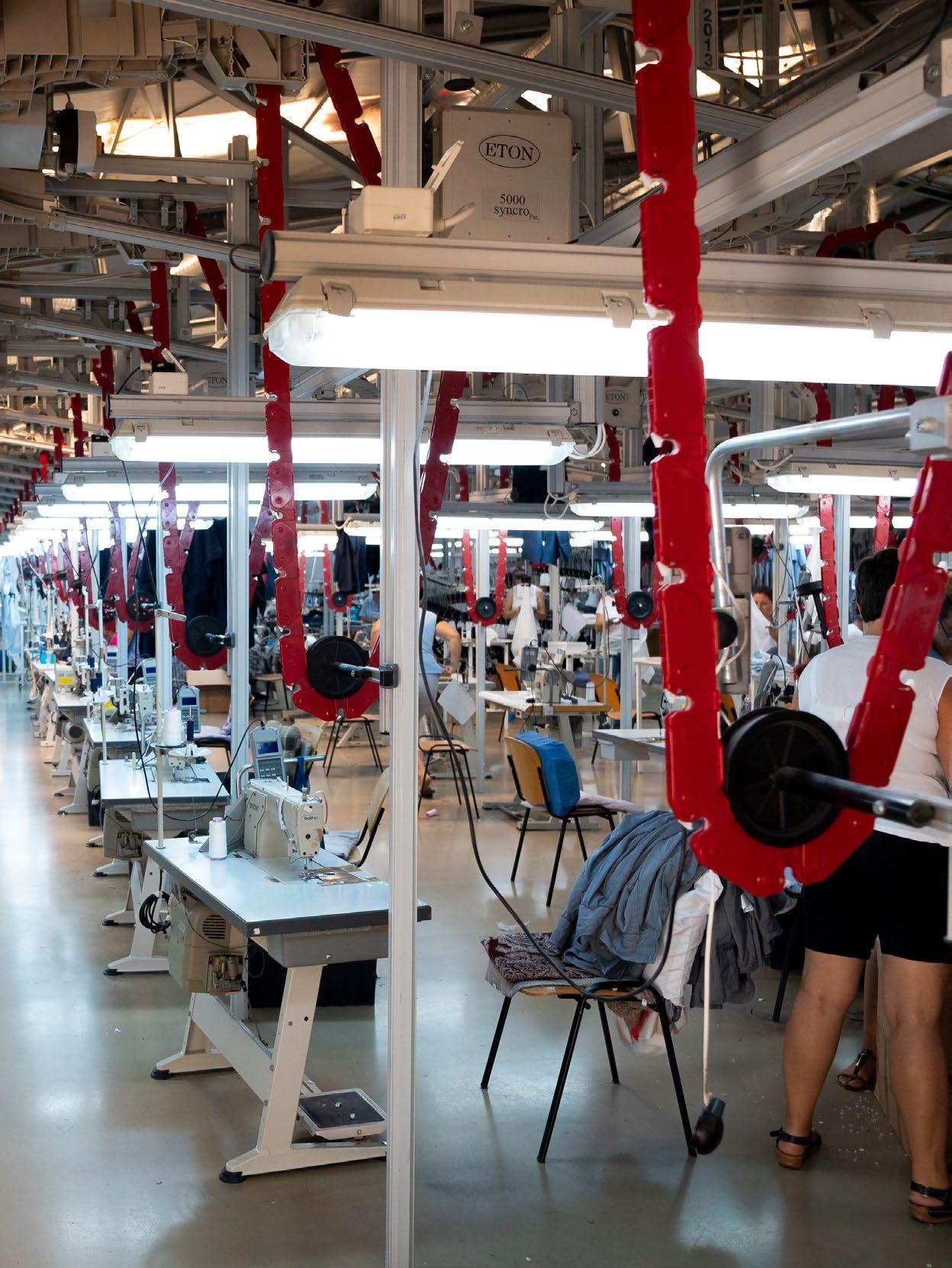
Supplier Yearly Follow-up
To maintain ethical standards, Eton’s suppliers complete self-assessments questionnaires to ensure that policies are in place, for continuous improvement.
96% OF OUR SUPPLIERS HAVE COMPLETED THEIR QUESTION NAIRES, OUT OF THESE:
ANTI-CORRUPTION
90% have an anti-corruption policy
Corruption harms both society and businesses, creating financial, operational, and reputational risks. To combat it, companies need strong anti-corruption policies and procedures. We review whether a company has an anti-corruption policy check, who receives training, and if the company has faced any corruption or bribery incidents. 71% of the employees at our Tier 1 and Tier 2 suppliers have received anti-corruption training, and there were no confirmed incidents of corruption or bribery among Tier 1 and 2 during the year.
BIODIVERSITY
36% have a biodiversity policy
Eton’s impacts on biodiversity and land use arise primarily during the raw material sourcing and production phases and is linked to our suppliers. As these impacts can lead to the loss, degradation, and fragmentation of natural habitats for various species,
it is crucial for us to actively follow up with our suppliers in this area, and to keep working on reducing our impact.
CODE OF CONDUCT
100% have a COC or COBE
A Code of Conduct or Code of Business ethics is a set of rules outlining ethical business behaviors values, norms, rules, and responsibilities.
WHISTLEBLOWING
100% have a whistleblowing function
Whistleblower mechanisms help companies receive reports on ethical concerns and potential issues through confidential interviews, hotlines, and reporting systems for non-compliance.
GRIEVANCE/COMPLAINTS
100% have a grievance/complaints handling mechanism related to employee matters
Grievance mechanisms help companies address complaints from employees and stakeholders, allowing them to detect and resolve issues early. They also provide valuable feedback on the effectiveness of the company’s policies and due diligence.

HUMAN RIGHTS
82% have a human rights policy
According to the UN Guiding Principles on Business and Human Rights, companies are responsible for respecting human rights. A human rights policy is the most common way to communicate the company’s commitment on how to meet its responsibility. The same share have adopted policies contributing to the abolition of child labor, aligned with international conventions and standards.
HUMAN RESOURCE
68% have an HR policy, employee handbook or equivalent
Human resource policies set the rules for hiring, training, evaluating, and rewarding employees. They ensure compliance with employment laws and clarify company expectations.
ENVIRONMENT
82% have an environmental policy
Environmental policies outline a company’s commitment to environmental laws and regulations, covering for example climate change, energy, biodiversity, water use, pollution, and resource management.
73% have a policy related to modern slavery
Companies that respect human rights must help abolish modern slavery by identifying, preventing, and addressing risks in their operations, subsidiaries, and supply chains. A modern slavery policy outlines a company’s commitment to tackling forced labor. It may demonstrate compliance with EU and international laws, covering voluntary employment, prohibition of coercion, monitoring, remediation, and supply chain accountability. This requires policies aligned with international standards like ILO Conventions 29 and 105 and the OECD Guidelines.
DIVERSITY AND INCLUSION
64% have a policy related to diversity and inclusion
Diversity and inclusion policies establish guidelines to promote and manage diversity and inclusion in company operations. They ensure legal compliance and set clear expectations for employees and stakeholders.
MODERN SLAVERY
HEALTH AND SAFETY
73% have a health and safety policy
Health and safety management aims to prevent harm and promote employee well-being while continuously improving workplace safety. A health and safety policy outlines a company’s commitment to a safe work environment, reducing risks of accidents, injuries, and health issues. While details vary by industry, key elements typically include:
» Risk Management: Identifying, assessing, and mitigating workplace hazards.
» Responsibilities: Assigning safety roles to individuals or teams.
» Training and Awareness: Educating employees on safety measures through training and information-sharing initiatives.

SUPPLY CHAIN – GENDER EQUALITY
Eton connects workplaces across countries and cultures, with colleagues of different genders, ages, and backgrounds. In our supply chain, women play a key role— particularly in our sewing factories—where their expertise and contribution are essential to our operations.
FIG 23. GENDER RATIO – SUPPLY CHAIN
FIG 22. GENDER REPRESENTATION IN SUPPLY CHAIN
Long-term Partnerships and Close Collaborations
At Eton, we prioritize collaboration and long-term partnerships to ensure longevity, quality, and fair working conditions. By actively engaging in the workplace and monitoring daily operations, we ensure that our guidelines are upheld in practice.
Our focus on sustained relationships increases the likelyhood of economic stability for our suppliers, enabling them to plan and recruit confidently. As a company that relies on sewing expertise—a field historically dominated by women—we recognize that our partnerships contribute to skill development and economic inclusion in regions where the textile industry plays a key economic role, reflecting the origins of our company.
THROUGH LONG-LASTING relationships with suppliers, Eton minimizes the risk of being associated with unsustainable practices. These relationships also enable us to influence suppliers, encouraging them to adopt more sustainable practices, such as implementing energy- and water-efficient techniques. Supporting suppliers of organic cotton and encouraging suppliers to explore innovations in more sustainable alternatives to cotton can reduce Eton’s raw material dependency and enhance resilience.
ADDITIONALLY, THESE EFFORTS would help meet the growing demand for sustainable products and bring positive brand-effects and a better market positioning, increasing talent attraction and preparing for regulatory changes and market shifts.
IN LINE WITH our belief in collaboration, we have local representatives, employed directly by Eton, on location in Romania, Lithuania, and Macedonia, interacting on the shop floor at our partnering Suppliers.
” Our partnerships contribute to skill development and employment.


ETON & VILKMA
30 Years of Partnership
IN 2024, ETON celebrates 30 years of partnership with Vilkma in Lithuania, a collaboration that has been vital to our growth as a leader in premium shirts and Custom Made program. Founded in 1967 in Ukmergė, Lithuania, Vilkma has a long heritage of textile craftsmanship. Since 1994, our partnership has been key in producing shirts of exceptional quality, merging traditional techniques with modern technology. Vilkma supplies shirts for our

regular collections and also serves as our sole Custom Made producer. This is a core part of Eton’s identity in the premium segment.
EVERY CUSTOM MADE SHIRT is crafted with precision, following a meticulous process that ensures a perfect fit.
THE FACTORY COMBINES quality craftsmanship with a strong commitment to ethical practices. The
state-of-the-art facility adheres to strict environmental and labor standards, ensuring that our manufacturing processes have minimal impact on the planet and the workers involved. Over the years, Vilkma has become more than a manufacturer, we see them as a highly trusted partner. Together, we continue to uphold a shared commitment to quality, craftsmanship, and sustainability. We look forward to many more years of collaboration.

Working at Eton
Working at Eton means being part of a quality-driven, collaborative and creative team in a fast-changing business.
COLLECTIVE BARGAINING AGREEMENTS
70% of Eton’s employees are based in Sweden and covered by collective bargaining agreements. These agreements are negotiated with Swedish labor unions such as Unionen, IF Metall, Ledarna, and the Swedish Association of Graduate Engineers. As an employer, Eton is represented by organizations like TEKO (for manufacturing) and Svensk Handel (for retail), which manage agreements on our behalf.
For employees outside Sweden, employment agreements are based on local collective bargaining agreements where applicable. In 2024, we signed a new collective bargaining agreement in Denmark, strengthening our commitment to local labor standards. Across most European countries, we partner with Business Sweden to ensure compliance with local employment laws and reimbursement regulations. In the United States, there are no collective bargaining agreements for white-collar roles aligned with our business model, thus our agreements are market based. 2023 saw no recorded incidents of discrimination and no corrective actions had to be taken.
OVERCOMING CHALLENGES AND EMBRACING CHANGE
Last year brought financial complexities and adjustments. Still, we had many significant successes, thanks to the hard work and dedication of our team. As we are moving into 2025, we see remaining challenges on the market. As things are changing fast, we need to remain agile to succeed.
To keep Eton strong, we decided to make important changes within our organization. We restructured and encouraged closer teamwork to carry out our strategies more effectively. Some roles were combined, and new ones were introduced. The biggest change was bringing together our Retail and eCommerce teams into a single Direct-to-Consumer (DTC) unit.
THE UNIONEN CLUB
The Unionen Club at Eton was founded at the company’s headquarters in Gånghester, Sweden, in the fall of 2018 and has maintained a good relationship with the employer. The club has around 60 members, the number remaining fairly steady over the years.
In 2024, the main focus has been Eton’s reorganization. The Unionen Club has worked to protect certain roles and question organizational changes. Since the union club was founded, the company has gone through a number of reorganizations, making this the club’s biggest area of work.
THE WORK INCLUDES:
» Negotiations under the Co-determination Act (MBL)
» Discussions with the employer
» Meetings with members
» A workplace representative following up with affected employees
The club’s board consists of seven members, and they also organize activities for members.

Great Place to Work® is a global organization that certifies companies based on employee experience and workplace culture.
GREAT PLACE TO WORK
We are proud to be a certified Great Place to Work, and we recognize that this is an ongoing journey. In May 2024 we conducted a follow-up to our comprehensive 2023 survey, revealing that there are still opportunities for improvement in certain areas. Through the survey we have identified key areas where we excelled and others where there’s room to grow. In response we worked closely with leaders scoring below 70% on the Trust Index or engagement metrics. We’re actively amplifying our strengths while tackling the areas that need a boost.
Our commitment to making Eton the world’s best workplace continues, with the latest survey—covering 2024—carried out in January 2025.
ETON RATED HIGHLY in camaraderie and values related to being welcoming, honest, and promoting a balanced work life. However, there is also room for improvement, particularly in areas such as communication and in setting clear expectations.
When you join the company, you are made to feel welcome.
I can be myself around here.
FIG 24. KEY METRICS FROM THE JAN 2025 GPTW SURVEY Examples of top and bottom results from the Trust Index™ (out of 60 statements).
Management has a clear view of where the organization is going.
Management makes its expectations clear.
HR Updates
MENTOR PROGRAM EXPANDED
We have initiated a pilot mentorship program where the CEO, along with members of the management team, coaches and mentors future stars within the organization. The initiative supports internal growth and is a key part of succession planning and talent retention. Launched in 2023 and expanded during 2024 proving a success with both mentors and mentees.
INCREASED USE OF FITNESS CONTRIBUTION
With the launch of our new Employee Benefits Package, we increased the annual fitness contribution from 1 000 SEK to 3 000 SEK per employee. This investment in em -
ployee well-being has been well received, with 65% of employees using the benefit in 2024.
ENHANCED ONBOARDING PROGRAM
Eton has improved the onboarding program by including an HR check-in 1–2 months after start. The meeting helps assess integration, address concerns, and the need for further support. It also covers feedback, growth opportunities, and alignment with our values. Available globally, it applies to all employees working 50% or more.
UPGRADING EMPLOYEE SKILLS
All employees have access to and are encouraged to participate in digital training courses through SANA and SECTION. An average of 2,1 hours of training per employee was utilized during 2024.

ADVANCING DEI EFFORTS
Working with our Head of Sustainability, HR has strengthened Diversity, Equity, and Inclusion (DEI) initiatives, focusing on gender equality. DEI principles are now integrated in development programs, mentorships, and hiring. Also, our succession planning is paying off. Out of 11 new leadership appointments this year, 7 were internal promotions.
DIALOGUE REVIEW
All employees completed the required feedback sessions during the year, in line with our ongoing commitment to open dialogue and professional development.
EMBRACING OUR COMPANY VALUES
At the start of the year, we introduced a mandatory digital training session: Embracing Our Company Values. This session gave employees a deeper understanding of our core values, what they mean and how they guide our work. Participants also reflected on their own behaviors and shared examples of how they apply these values daily. So far, 75% of employees have completed the training.
WORK SMART WORKSHOP
In 2024 we placed a strong focus on the value Work Smart. We held workshops across all departments to turn this value into practical actions. These sessions helped teams work more efficiently, collaborate better, and drive innovation.
ETON VALUES STORY
To bring our values to life, we created a video that serves as a key tool for recruitment, company presentations, our careers page on etonshirts.com. It also emphasizes our shared culture and values internally.
ETON VALUES PURSUIT
To deepen the role of our values in company culture, we launched Eton Values Pursuit, a board game designed to encourage teamwork and cross-functional collaboration. The game includes a board, playing pieces, and cards with value-based scenarios for discussion. Over 20 employees have played so far. By the end of 2025, we aim for everyone in the company to have participated at least once.
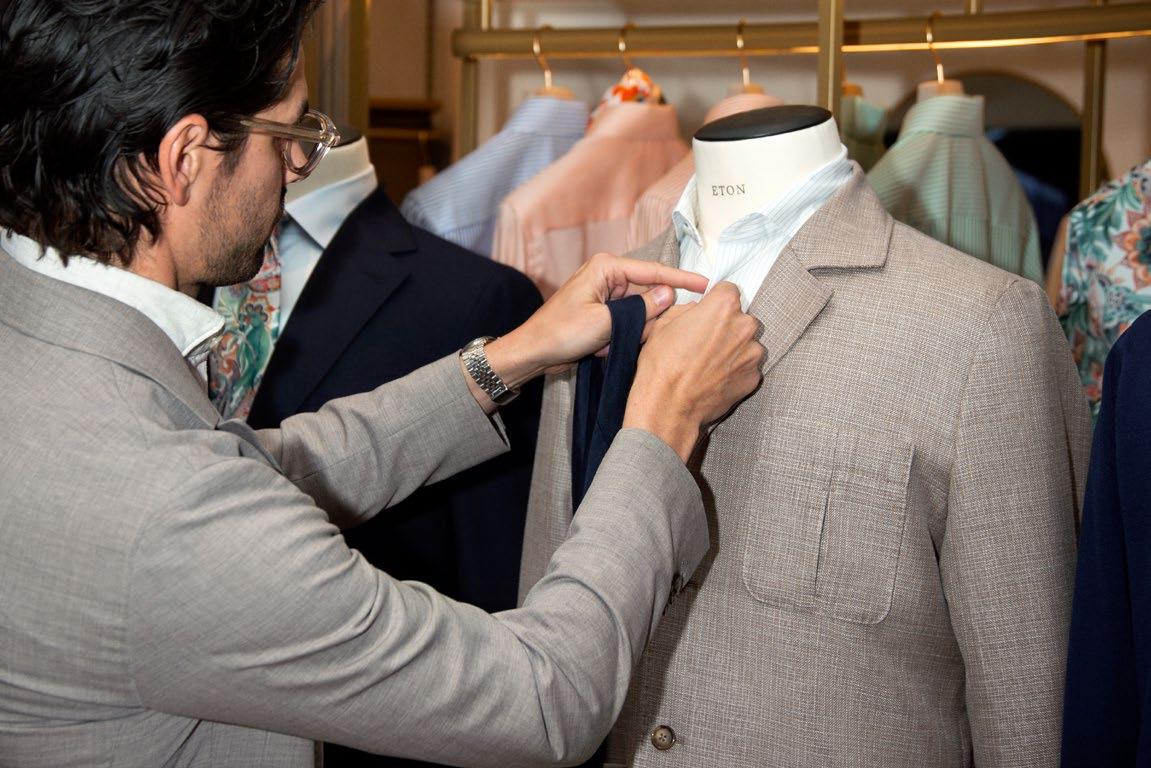
Eton Gender Equality
A thriving Eton depends on understanding where we stand in terms of gender parity and fair compensation across all our workplaces. Mapping these insights is a prerequisite for ongoing diversity and inclusion efforts within the Eton Group and supports our transformation in line with SDG 5. At Eton, we assess gender parity annually. In 2024, we hired 60 new full-time employees, of whom 31 were women. Additionally, 6.5 FTEs were on parental leave.
*Managers: Spans from specific responsibility, to low, mid and higher management. Includes all Eton Group employees globally with staff responsibilities. Note that previous years (2019–2021) we included expert functions with area management but no staff responsibility under the title “Manager”.
FIG 26. GENDER PARITY – PROGRESS REPORT (%)
Building an Inclusive and Fair Workplace
With a strong understanding of HR processes and systems, Isabelle Lundgren plays an important role in ensuring fairness, diversity, and growth within the company. One of Eton’s key priorities is Diversity, Equity, and Inclusion (DEI) across all global locations.
“DEI is about making sure everything we do is fair, from policies to workplace culture,” Lundgren explains. The company works to build a diverse team and has started implementing AI tools to keep job postings inclusive. “We want to prevent unintentional bias, making sure that the language and terminology stay neutral to attract a broad range of candidates.”
THERE HAS BEEN progress in gender balance, though challenges remain. Eton’s approach to diversity goes beyond visible traits like gender, age and ethnicity to include education and personality. Personality tests are used with caution. “We have tried using StrengthsFinder as a discussion tool when hiring, and we are also considering it for internal purposes, to see how we better can complement each other in different roles,” Lundgren says.
SALARY BALANCE IS an area of improvement. In 2024, 60% of the company’s top earners were men and 40% were women, which is more balanced than previous years. “We are working on long-term solutions to continue closing the gap,” Lungren continues.
THE COMPANY ALSO works to ensure employees on parental leave are not left behind. “Many men at Eton take parental leave, but women typically take longer breaks. We offer benefits like reduced working hours afterward and salary compensation to help balance this.” Salary adjustments also apply to employees on leave, and mentorship programs keep them engaged in career development.
INTERNAL CAREER GROWTH is another key focus, Eton ensures to highlight opportunities for development the company. “We prefer to promote first-line managers from within,” Lundgren says. “This helps employees understand the company culture and gives them a clear path for growth.” Career development is structured, with annual dialogue reviews and open internal job postings.
LOOKING AHEAD, Eton remains focused on strengthening career development, maintaining a balanced workforce, and ensuring fairness at all levels. “Our hiring strategies will keep evolving, and our goal is to make Eton a workplace where everyone—regardless of background—can succeed and grow.”

HR GENERALIST
ISABELLE LUNDGREN

Governance & Finance
86 Business Transition
88 Structured Responsibility
89 Integration of Sustainability
90 Governance Information
91 Key Metrics
93 Risks and Opportunities
94 Anti-Corruption
94 Em(Power) Day
95 Standards and Policies
96 Transparency
97 Systemdemonstrator
98 Double Materiality Analysis
100 Memberships and Associations
102 Direct Economic Value
103 How We Report
104 GRI-Index

Our commitments
» Ensure that we contribute to prosperity through our business practices in all the markets we are active in.
» Full transparency throughout our supply chain by 2025.





Transition Makes Business Sense
Eton’s ambition is to conduct our business responsibly and within the planetary boundaries. We are committed to integrating sustainability into every aspect of our decision-making.
As a company within the fashion industry, we know that our operations impact not only our business partners and the wellbeing of their workers, but also the climate and the environment. This awareness drives us to take active responsibility for minimizing our footprint throughout our value chain. Reducing emissions through climate action must happen swiftly and decisively. We recognize the need to avoid climate change by limiting global warming below 2°C, and pursuing a limit of 1.5°C, as stated in the Paris Agreement.
The SBTi has approved Eton Group’s science -based emission reduction targets for its own operations and its value chain. Additionally, The SBTi has validated Eton’s Net Zero targets for Scope 1, 2, and 3. This validation confirms that Eton’s climate strategy and targets align with the Paris Agreement, ensuring they are scientifically robust. Direct emissions reductions (decarbonization) will be prioritized, and all residual emissions will be neutralized (if applicable) in line with SBTi criteria before reaching net-zero emissions.
ETON GROUP AB COMMITS TO:
» Reduce absolute Scope 1 and 2 GHG emissions 91.60% by 2030 from a 2019 base year.
» Reduce absolute Scope 3 GHG emissions 27.50% by 2030 from a 2019 base year.
» Reach net-zero greenhouse gas emissions across the value chain by 2050.

Structured Responsibility

Our commitments and goals are developed in line with our ambition with existing and future regulations. We have matched them with defined action points.
We have implemented our sustainability commitments into our 5-year Business plan and into the yearly target setting process that we work on—both on a company, team, and individual level. Our transformational journey is dependent on the responsibility of everyone at Eton. Across our operations, we encourage a sustainable mindset. Our formal governance has a Sustainability function, consisting of our Head of Sustainability and a Sustainability coordinator. The Head of Sustainability has the support of a Sustainability Steering Group that coordinates efforts at management level.
WE HAVE MAPPED our emissions in Scope 1, 2 and 3 with a high degree of actual data. This enables structured dialogue with stakeholders and suppliers regarding the needed transitional journey. We map the energy usage of our existing suppliers and engage in a dialogue about how they should transition towards renewable energy. We support them with our expertise, prioritizing a collaborative shift to renewable energy. Additionally, we evaluate new suppliers based on how they meet our requirements for renewable energy. We offer stability and support to suppliers through long-term partnerships, aiding their transition to more sustainable practices.
THE PEOPLE PILLAR serves as the basis of our human rights and compliance commitment — we are dedicated to advancing diversity, equity and inclusion and economic growth through quality jobs for all. Guided by our One Eton values and the UN’s definition of prosperity, our aim is “to ensure that all human beings can enjoy prosperous and fulfilling lives and that economic, social, and technological progress occurs in harmony with nature.”
Integration of Sustainability
Our sustainability strategy is built on extensive reporting, impact analysis, ambitious goals, consumer insights, stakeholder input, and our company values.
To reduce and mitigate Eton’s impact and create value for stakeholders, we follow a clear sustainability strategy. We have implemented it within our greater overall strategy—shown in our business plan and our internal processes.
THE BOARD OF DIRECTORS and CEO oversee our strategy and key sustainability focus areas. The Head of Sustainability leads the work, supported by our sustainability coordinator as well as a steering group that meets monthly to move the agenda forward through ideas and problem-solving.
IN 2024 , the Sustainability Steering Group included members from Assortment, Supply Chain, Marketing, E-com, Wholesale, CFO and our CEO. Any negative impacts are addressed within the group and reported to the management team and the Board. Our strategic actions are based on material topics identified through our double materiality analysis.
THE ANNUAL Sustainability Report is approved at the Eton Group’s Annual General Meeting in May 2025. This meeting also confirms the board of directors, their compensation, and the appointments of Chair, Vice Chair, and other members. The board adopts the remuneration policy each year.

Governance Information
HEAD OF SUSTAINABILITY AND CEO
Eton’s Head of Sustainability leads our global sustainability strategy, heads the Sustainability function and Steering Group, develops goals, and educates our team in collaboration with various departments. Monthly meetings with the CEO cover progress, goals, directives, and initiatives and include updates on status versus goals, present and future issues, laws and regulations, needs and requirements, and Sustainability Steering Group actions, workstreams and employee-led initiatives.
BOARD OF DIRECTORS
The Chair of Eton’s Board oversees human rights, environmental, and climate impact. Lina Ödeen, Head of Sustainability, provides biannual in-depth analyses to the Board. The board is evaluated yearly by the owners, covering skills and insights in economic, environmental, and social areas, in conjunction with the Annual General Meeting (May 2024). The set up of the board changed towards gender equality in 2023, and the board representative is 50/50.
BOARD OF DIRECTORS
HEAD OF SUSTAINABILITY
MANAGEMENT TEAM
FIG 27. REPORTING STRUCTURE
The Board of Directors oversees the company’s strategy and sustainability topics. The CEO reports to the Board of Directors. Eton’s Head of Sustainability reports to the CEO.
Total emissions per net revenue (ton CO 2 e/MSEK)
Scope 1 and 2 emissions per net revenue (ton CO 2 e/MSEK)
emissions per sold product (kg CO 2 e/sold product)
emissions per sold product (kg CO 2 e/sold product)
Production emissions per purchased product (kg CO 2 e/purchased product)

FIG 28. KEY METRICS

Identified Financial Risks
CLIMATE CHANGE IMPACTING THE PRICE OF FABRICS
Climate change directly impacts fabric prices, primarily through potential disruptions to the supply chain. The decreased availability of fabrics may lead to price increases, presenting a challenge for Eton to pass these costs on effectively. Without appropriate adjustments in pricing, Eton risks experiencing a decline in gross margins. To counteract this, innovative sustainable production solutions are necessary, with investments in both product development and sustainability staff.
GLOBAL TARIFFS AND MARKET EXIT
The imposition of tariffs as a response to climate change poses a significant threat to Eton’s access to global markets. Higher tariffs not only raise duty costs but also hinder the ability to penetrate new markets. This situation escalates the cost of products sold, further complicating matters. Additionally, increased investment in manufacturers becomes necessary to meet the impacts of tariffs, which means additional financial challenges.
RISKS OF INADEQUATE
SUSTAINABILITY REPORTING
Inadequate sustainability reporting could jeopardize Eton’s reputation
and the trust of its market. Errors or inconsistencies in reporting can tarnish the brand’s image, leading to lower revenues and earnings. To mitigate these risks, rigorous sustainability reporting practices are essential. Leveraging both internal expertise and external resources ensures the accuracy and transparency of sustainability data. Fulfilling sustainability commitments not only enhances financial performance but also strengthens the brand’s reputation in the market.
The identified financial risks connected to climate change are both physical and regulatory.
Identified Financial Opportunities
As climate change intensifies –bringing about extreme weather events like heat waves, storms, floods, fires, and displacement of people due to climate related reasons – media coverage of these issues is also increasing. The attention, coupled with urgent messages from activists, scientists, and world leaders, is raising awareness about the need for sustainable practices. An increased awareness may lead more people to question their consumption habits, particularly in the fashion industry.
As a company that prioritizes quality and longevity, Eton offers timeless, stylish and durable products, encouraging consumers to buy less frequently but invest in quality. As we continue our journey towards a more sustainable business model, we aim to meet the expectations of conscious consumers. This could lead to increased demand for our products, potentially enhancing our profitability.
By addressing our environmental impact and anticipating future regulations, we position ourselves
to adapt to changing market conditions. Exploring circular business models, where products are reused or repurposed, presents an opportunity for additional revenue streams. Ultimately, we believe that our commitment to producing long lasting products will not only sustain our business but also allow it to thrive in a changing economic and environmental landscape.
Anti-Corruption
We work to prevent all forms of harassment, corruption, bribery, and misconduct in the workplace. Our anti-corruption policy was introduced in 2019, and no incidents were reported during the current reporting period. All new employees complete an online anti-corruption training, with an annual reminder to retake it.
Our digital business system includes an anonymous whistleblower
function, in line with EU directives and Swedish legislation. This feature allows employees to express concerns freely and securely regarding compliance, HR matters, or company culture. In 2024, Eton received no whistleblower reports.
By signing our Code of Conduct, all suppliers commit to upholding high ethical standards in their business practices. Our audits also assess management systems
related to anti-bribery, corruption, and other unethical practices. No confirmed incidents of corruption were reported during the year.
90% of our reporting suppliers have an anti-corruption policy, with 71% of the employees having received anti-corruption training.

Em(Power) Day
A VOLUNTEER DAY in the local community and organizations. Through the EM(POWER) DAY initiative, Eton offers all employees the opportunity to volunteer in their local community, with full
salary retained. The initiative allows teams or individuals to support causes of their choice — from helping local organizations to participating in environmental clean-up efforts or food distribution programs.
Standards and Policies
Our policies are developed in line with regulatory requirements and business needs from a sustainability perspective. In our policies, we emphasize respect for Human rights and mitigating our impact on the climate and the environment. Our Sustainability Policy stipulates that we conduct due diligence on our suppliers. Our Sustainability Policy states that we must conduct due diligence on our suppliers and always apply the precautionary principle, as set out in Principle 15 of the UN Rio Declaration on Environment and Development. Eton’s policy process is described in the Procedure for Policy Management. This procedure ensures the existence of relevant policies, their communication and understanding, and their monitoring and enforcement. In addition to our policies related to sustainability, the Eton Car Procedure requires company cars

to be either hybrid or fully electric. The Wholesale team goes even further, with employees required to choose fully electric vehicles only. All policies, procedures and instructions are reviewed annually and adopted by the Board of Directors at the annual general meeting.
ALL POLICIES ARE AVAILABLE AT HTTPS://CORPORATE.ETONSHIRTS.COM/ POLICIES-GOVERNANCE-AND-REPORTS
» Sustainability Policy
» The Eton Company Values
» Code of Conduct (internal)
» Code of Conduct (external)
» Anti-corruption and Anti-bribery Policy/HR Policy (including Equal Treatment, Workplace Guidelines)
» The Eton More Sustainable Product Guideline
Supply Chain Transparency
We provide clear, regularly updated information about our suppliers and their environmental and social performance.
We have mapped 100% of our Tier 1 and Tier 2 suppliers, with trims and packaging suppliers currently out of Scope. We track their resource consumption, use of wet processes, wastewater treatment, textile waste, and packaging, including recycling rates. Environmental and social impacts are assessed through audits. Most of the audits are carried out by the third-party auditor Intertek, and the remainder by Eton Sustainability.
All new suppliers sign our Code of Conduct after an initial screening based on our defined sustainability criteria. In line with our transparency approach, we publicly disclose our supply chain at etonshirts.com, including number of employees, gender parity, and length of collaboration. The information is updated every year. Our Supplier List can be found at etonshirts.com.
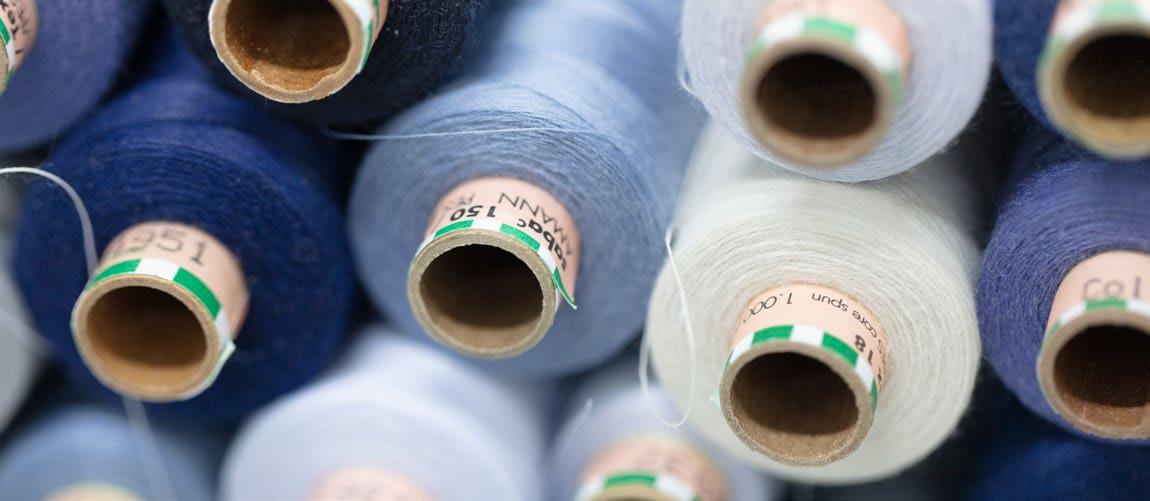
Systemdemonstrator – Traceability, Transparency and Circularity
Eton is collaborating with the University of Borås, Science Park Borås, and fourteen other companies and industry partners for a more sustainable textile industry.
We are proud to be part of the three-year Systemdemonstrator project, now in its second year. The goal is to test and develop a new circular ecosystem for textiles, positioning Sweden as a leader in meeting the EU’s sustainability goals for the fashion and textile industry. A key focus is increasing traceability and transparency in line with upcoming EU requirements, such as the Digital Product Passport (DPP).
THE PROJECT EXPLORES A RANGE OF INITIATIVES:
» New methods for household textile collection.
» A national textile sorting facility being established in Södertälje.
» New collections created from used garments.
» Options for customers to buy upgraded, second-hand items.
» Improved traceability to support customers and a more efficient aftermarket.
Another important area for Eton is the Digital Product Passport, developed in collaboration with Blippa

and TrustTrace. We are identifying which data points are needed, where that data currently exists in our systems, and what’s missing. This is an important step toward full product transparency.
Systemdemonstrator stands
out by addressing the entire value chain: from design and production to reuse and recycling. The aim is to create scalable, circular business models that reduce waste and environmental impact, while extending the life of clothing.
Double Materiality Analysis
The Double Materiality Analysis is an assessment that identifies impacts, risks, and opportunities from both a sustainability and a financial perspective.
In the fall of 2024, we conducted a double materiality analysis in accordance with the CSRD directive and ESRS disclosure requirements. For this we partnered with the consultancy firm Enact. The aim of the assessment was to identify our impacts, risks, and opportunities from two perspectives: impact materiality and financial materiality. The impact assessment refers to how the company affects the environment and society. The financial assessment concerns how environmental and societal developments may, in turn, affect the company through potential risks or opportunities.
PROCESS TO IDENTIFY AND ASSESS MATERIAL IMPACTS, RISKS AND OPPORTUNITIES
We began by mapping our company and supply chain, starting with a kickoff session that brought together internal stakeholders. This was followed by a quantitative research phase that helped us identify key sustainability issues early on.
NEXT, WE MAPPED both internal and external stakeholders based on their knowledge of our company and value chain. The most relevant stakeholders identified included Tier 1 and 2 suppliers, wholesale customers in Europe and North America, owners, NGOs, and end consumers. HR provided valuable insights regarding our workforce, and we collected
IMPACTS, RISKS & OPPORTUNITIES
POSITIVE IMPACTS
E5 Responsible practices
G1 Management of relationships with suppliers
NEGATIVE IMPACTS
E1 Energy consumption and GHG emissions
E2 Pollution of air
E2 Pollution of water & soil
E2 Plastic use
E3 Water use
E4 Impacts on biodiversity and ecosystems
S1 Working environment and health-related impacts
S2 Working conditions and labour rights
S2 Human rights violations in the textile industry
S2 Health and safety in the textile industry
RISKS & OPPORTUNITIES
E1 Climate-related disruptions
E1 Air transport
E4 Raw material dependency (cotton and wool)
Supply chain disruptions
Sustainability certifications and labels
After completing the double materiality analysis, we found that the material aspects identified were largely aligned with what we have previously reported on. As a result, we replaced the former materiality assessment with the updated version in this year’s reporting.
FIG 29. MATERIAL TOPICS

input from suppliers regarding workers throughout the value chain. Feedback from end consumers was collected through our Direct-to-Consumer Director, providing insights based on customer interactions and past surveys. We do not currently collaborate with any NGOs and chose to rely on desktop research to assess their perspectives and our potential impact there.
INTERNALLY, STAKEHOLDERS were interviewed from key departments and functions including Assortment (design, collection development, fabric sourcing and buying) and Supply chain operations (production, quality, and distribution). In addition, all external stakeholders—except end consumers and NGOs—were interviewed to gain a deeper understanding of Eton’s specific impacts and opportunities.
SIGNIFICANT EFFORT was devoted to mapping our entire value chain, particularly our supply chain from Tier 1 through Tier 4, to ensure full visibility of our impacts, risk and opportunities.
ENACT LED THE STAKEHOLDER engagement process, collecting input on impacts, risks, and opportunities. This was followed by a thorough analysis, several internal workshops including a financial validation workshop. The process concluded with the prioritization and definition of our material topics.
TO FINALIZE THE ANALYSIS , the results were presented to the Board of Directors and received formal approval, marking an important step on our ongoing sustainability journey.
Memberships and Associations
THE SCANDINAVIAN TEXTILES INITIATIVE FOR CLIMATE ACTION (STICA)
In 2019 Eton joined STICA, an initiative to drive collective action within the Scandinavian textile industry with the aim to lower emissions and combat climate change.
In 2024, we took the next step by in addition joining STICA+, expanding our focus to include environmental impact such as biodiversity preservation and water efficiency. Eton—led by our Head of Sustainability who serves as co-chair—actively participates in working groups to drive progress in these areas. To learn more, please visit sustainablefashionacademy.org/stica
SUSTAINABLE
FASHION ACADEMY (SFA)
In 2022 Eton joined SFA Learning & Innovation Network (LIN), launched by the Sustainable Fashion Academy (SFA). The purpose of the network is to help apparel and textiles companies stay updated and prepare for upcoming EU environmental and social policies and regulations that will impact brands and retailers operating in or placing products in the European common market.

THE SWEDISH CHEMICALS GROUP (KEMIKALIEGRUPPEN)
TEXTILE EXCHANGE (TE)
TE is a non-profit organization driving beneficial impacts on climate and nature across the fashion, textile, and apparel industry. TE works closely with its global network of members to set industry standards, promote preferred materials, and support sustainable practices throughout the supply chain.
Kemikaliegruppen provides current insights on chemical and environmental issues to textile and electronics industry members. A membership offers access to external monitoring, networks, practical tools, early notice on relevant legal updates, and news about chemicals found in articles and potential substitutes.
TEKO, SVERIGES TEXTIL & MODEFÖRETAG
TEKO is a Swedish trade and employers’ association, representing around 340 member companies in the textile and fashion industry globally. They inform the public and government about industry matters, negotiate collective agreements, and provide support in various areas including logistics, media, and lobbying. Eton is also part of TEKO’s environmental group, where member companies meet and discuss current sustainability issues several times a year.
LOCAL COMMUNITIES
Many of Eton’s leaders and staff regularly participate in interviews and provide support to students at schools, both locally and globally. We also contribute materials for product development in line with studies. Many organizations are interested in our Production Unit in Gånghester, and we often arrange tours to showcase it.
THE SCIENCE BASED TARGETS INITIATIVE (SBTI)
The SBTi is a collaboration between CDP (formerly the Carbon Disclosure Project), the United Nations Global Compact, World Resources Institute (WRI), and the World Wide Fund for Nature (WWF). The initiative encourages and helps companies to set ambitious emission reduction targets in line with the latest climate science. Read more on Eton’s own Science Based Target validated by the SBTi on page 39.

Direct Economic Value
FIG 30. DIRECT ECONOMIC VALUE GENERATED AND DISTRIBUTED
EVG and D on an accrual basis, including the basic components for the organization’s global operations.
I. Direct economic value generated during the reporting period: revenues.
II. Economic value distributed during the reporting period: inc. operating costs, employee wages and benefits, payments to providers of capital, payments to government by country, and community investments.
III. Economic value retained during the reporting period: ‘direct economic value generated’ less ‘economic value distributed’
EVG and D separately at market levels
For more information on our financial status see our Annual Report.
There were no substantiated complaints received concerning breaches of customer privacy, and no identified leaks, thefts, or losses of customer data.
How We Report
SCOPE AND BOUNDARIES
The Eton Group publishes its annual sustainability report within the same timeframe as the annual financial report. The Sustainability Report is prepared in accordance with GRI standards and encompasses the global operations of the Eton Group.
As of 2024, this includes the following wholly owned subsidiaries: Eton AB, Eton Group AB, Eton Shirts GmbH, Eton Shirts Ltd, Eton Canada Inc, Eton Holding Inc, Eton Inc, Eton Madison Avenue Inc, Eton S.R.L., and Eton AS.
The report also covers five offices located in Sweden, Italy, the USA, and the UK, six showrooms in the Netherlands, Italy, UK, USA, Germany, and Sweden, two company-operated logistics centers in Sweden and the USA, and all Eton-owned stores and outlets.
The report does not include wholesale customer stores, Eton-branded shop-in-shops operated by partners. If any results presented in the report deviate from this defined Scope, such exceptions are clearly indicated alongside the specific data.
THE ETON GROUP IS OWNED BY EQT
To ensure compliance with laws and regulations, we make our sustainability report public on bolagsverket.se and etonshirts.com. The report has not been reviewed in full by any third party.
FRAMEWORK
This report is prepared in accordance with the Global Reporting Initiative (GRI) Standards: Core Option. Additional information about our ownership structure, business operations and financials can be found in our Annual Report for 2024.
REPORTING PERIOD AND FREQUENCY
Eton creates a public sustainability report each year, this report covers the period 1 January, 2024 through 31 December, 2024. The report was approved by the Board on the 24th of April 2024.
PROCESS
The Head of Sustainability is responsible for reviewing and approving the reported information, including the organization’s material topics. This is done in collaboration with all department representatives, and the identified issues and progress is documented. The report is presented to, and approved by CEO, David Thörewik, and Board of Directors, chaired by Peter Sjölander.
CONTACT
GENERAL REQUESTS AND QUESTIONS: csr@etonshirts.com
SPECIFIC QUESTIONS ON THIS REPORT: Lina Ödeen, Head of Sustainability lina.odeen@etonshirts.com
ETON AB Stora vägen 8 507 71 Gånghester Sweden
ETONSHIRTS.COM
GRI-Index
Statement of use: Eton Group has reported in accordance with the GRI standards for the period 2023
GRI1: Foundation 2021. Applicable GRI sector standard(s): No applicable sector standad at the reporting
GRI STANDARD DISCLOSURS
GRI 2: GENERAL DISCLOSURES 2021
1. Organizational profile 2-1 Organizational details 10–13
2-2 Entities included in the organization’s sustainability reporting 10–13
2-3 Reporting period, frequency and contact point 103
2-4 Restatements of information No restatements of information during 2024.
2-5 External assurance 103 The climate calculations have been externally assured.
2. Activities and workers 2-6 Activities, value chain and other business relationships 10–13
2-7 Employees 10, 76–83, 94
2-8 Workers who are not employees 10
3. Governance 2-9 Governance structure and composition 90
2-10 Nomination and selection of the highest governance body 90
2-11 Chair of the highest governance body 90
2-12 Role of the highest governance body in overseeing the management of impacts 90
2-13 Delegation of responsibility for managing impacts 90
2-14 Role of the highest governance body in sustainability reporting 90
2-15 Conflicts of interest No conflicts of interest identified.
2-16 Communication of critical concerns 90
2-17 Collective knowledge of the highest governance body 90
2-18 Evaluation of the performance of the highest governance body 90, 95
2-19 Remuneration policies 90
2-20 Process to determine remuneration 90
2-21 Annual total compensation ratio Note 9 in the Annual Report.

2023 01 01–2023 12 31 reporting period.

& COMMENTS
GRI 2: GENERAL DISCLOSURES 2021
4. Strategy, policies and practices 2-22 Statement on sustainable development strategy 4
2-23 Policy commitments 95
2-24 Embedding policy commitments 95
2-25
2-26
Processes to remediate negative impacts 34–82
Mechanisms for seeking advice and raising concerns 94
2-27 Compliance with laws and regulations No non compliance with laws and regulations for the reporting period.
2-28 Membership associations
5. Stakeholder engagement 2-29 Approach to stakeholder engagement 67–75, 89, 98–99
2-30 Collective bargaining agreements 77
GRI 3: MATERIAL TOPICS 2021
Material topics 2021 3-1
Process to determine material topics
3-2 List of material topics
3-3
Management of material topics
Responsible practices
Management of relationships with suppliers
Energy consumption and GHG emissions
Pollution of air
Pollution of water & soil
Plastic use 49, 57
71
Water use 60–61
Impacts on biodiversity and ecosystems 55, 48–49
Working environment and health-related impacts 77–82
Working conditions and labour rights 67–75
Human rights violations in the textile industry
Health and safety in the textile industry
Climate-related disruptions
Raw material dependency
Supply chain disruptions
Sustainability certifications and labels
90
GRI STANDARD DISCLOSURS
GRI 200: ECONOMIC DISCLOSURES
201-1 Direct economic value generated and distributed
201-2 Financial implications and other risks and opportunities due to climate change
205-1 Operations assessed for risks related to corruption 15, 67–70, 94
205-2 Confirmed incidents of corruption and actions taken 94
GRI

301-3 Reclaimed products and their packaging materials
301-own 1 Number of articles which inhabitate a sustainable certification
301-own 2
303-own 1
303-own 2
Packaging materials has intentionally been excluded due to limitations in data collection.

